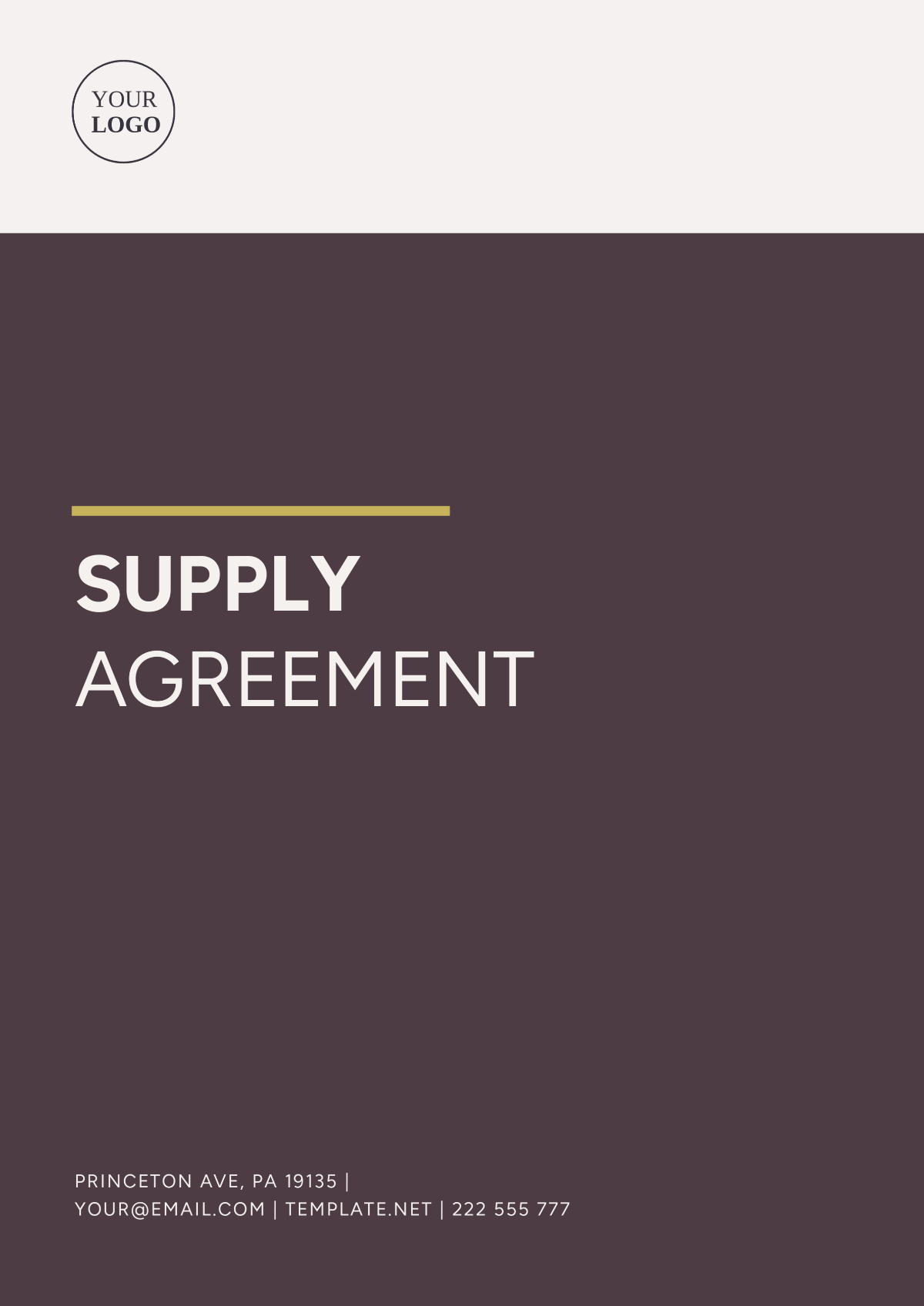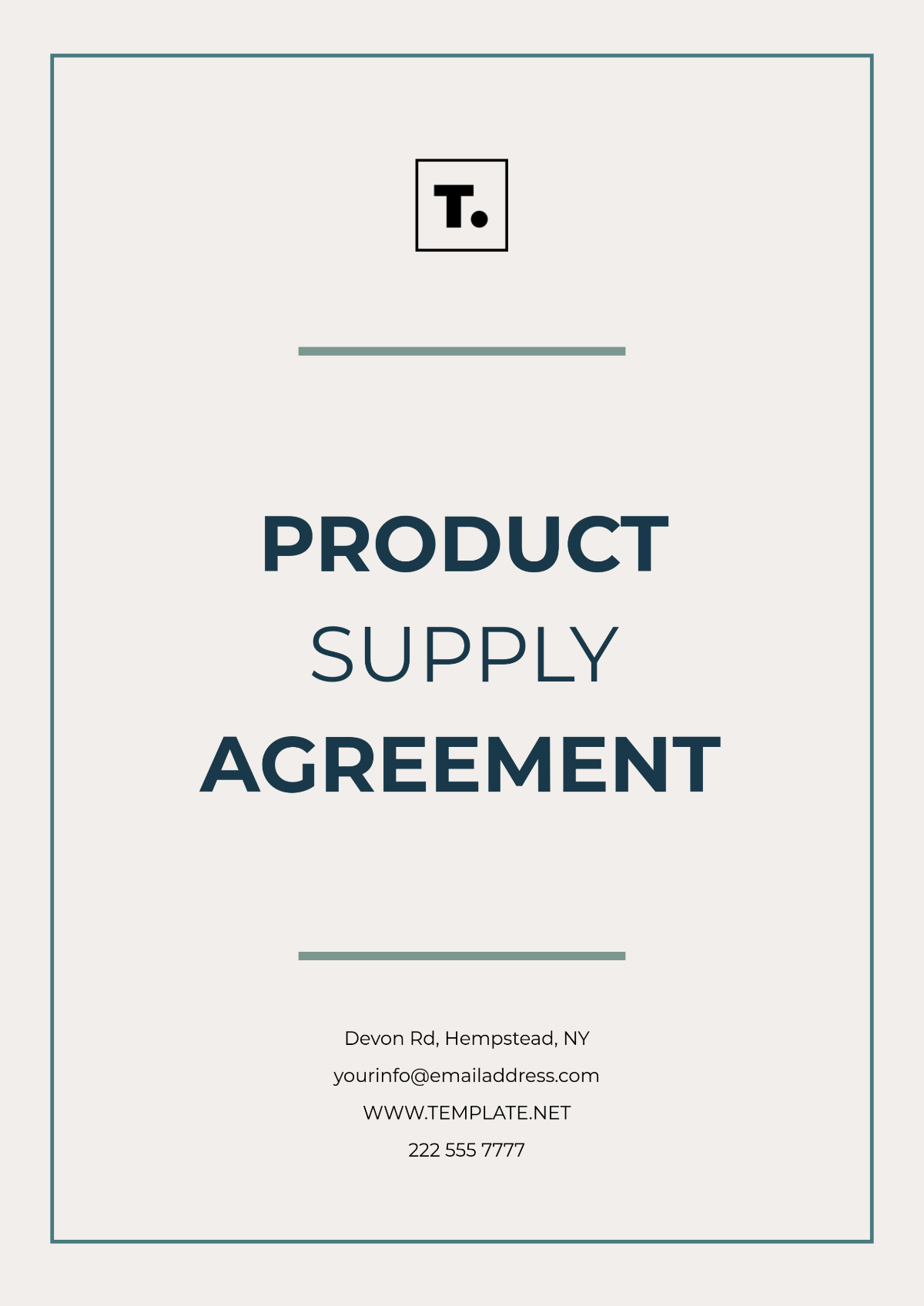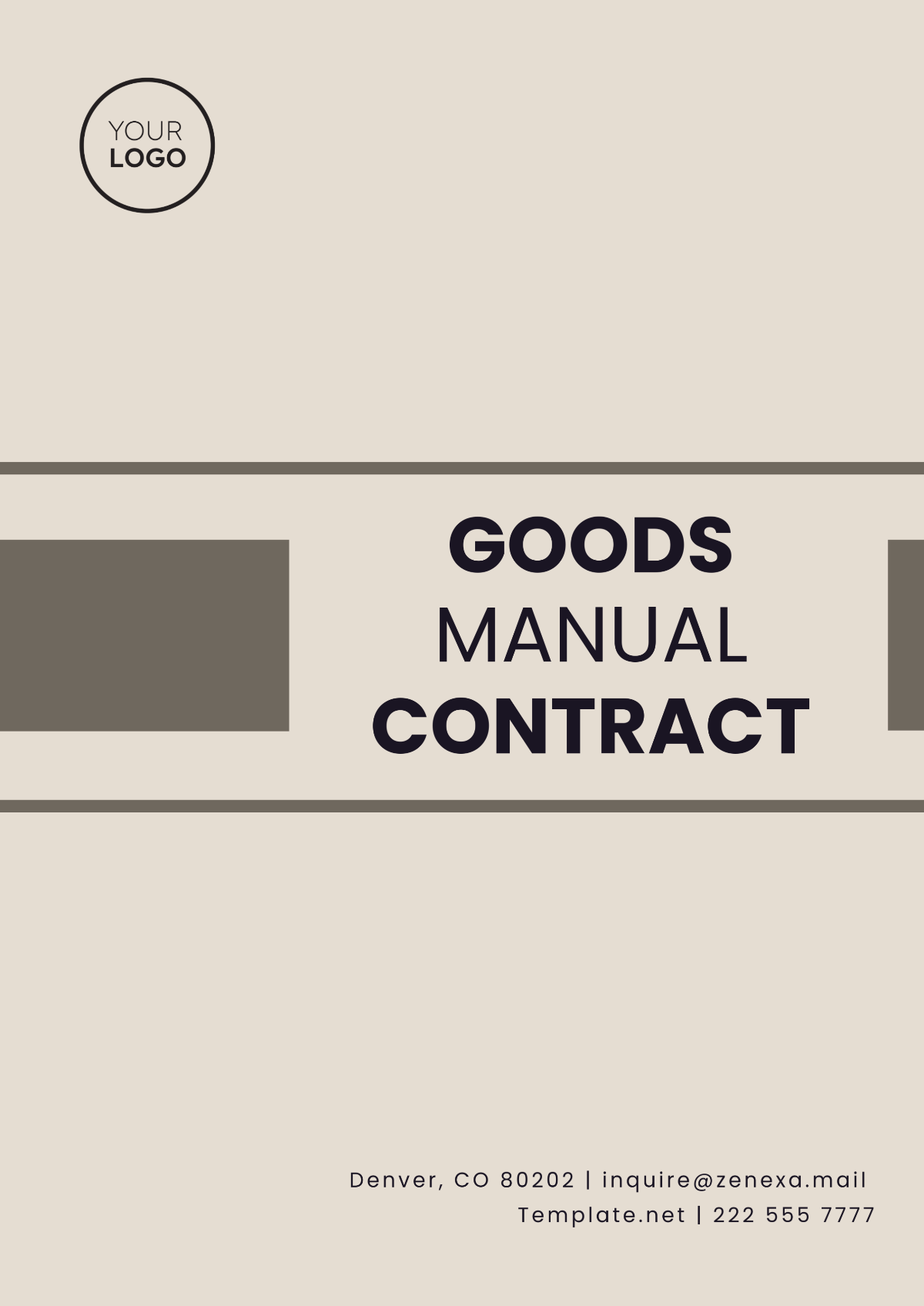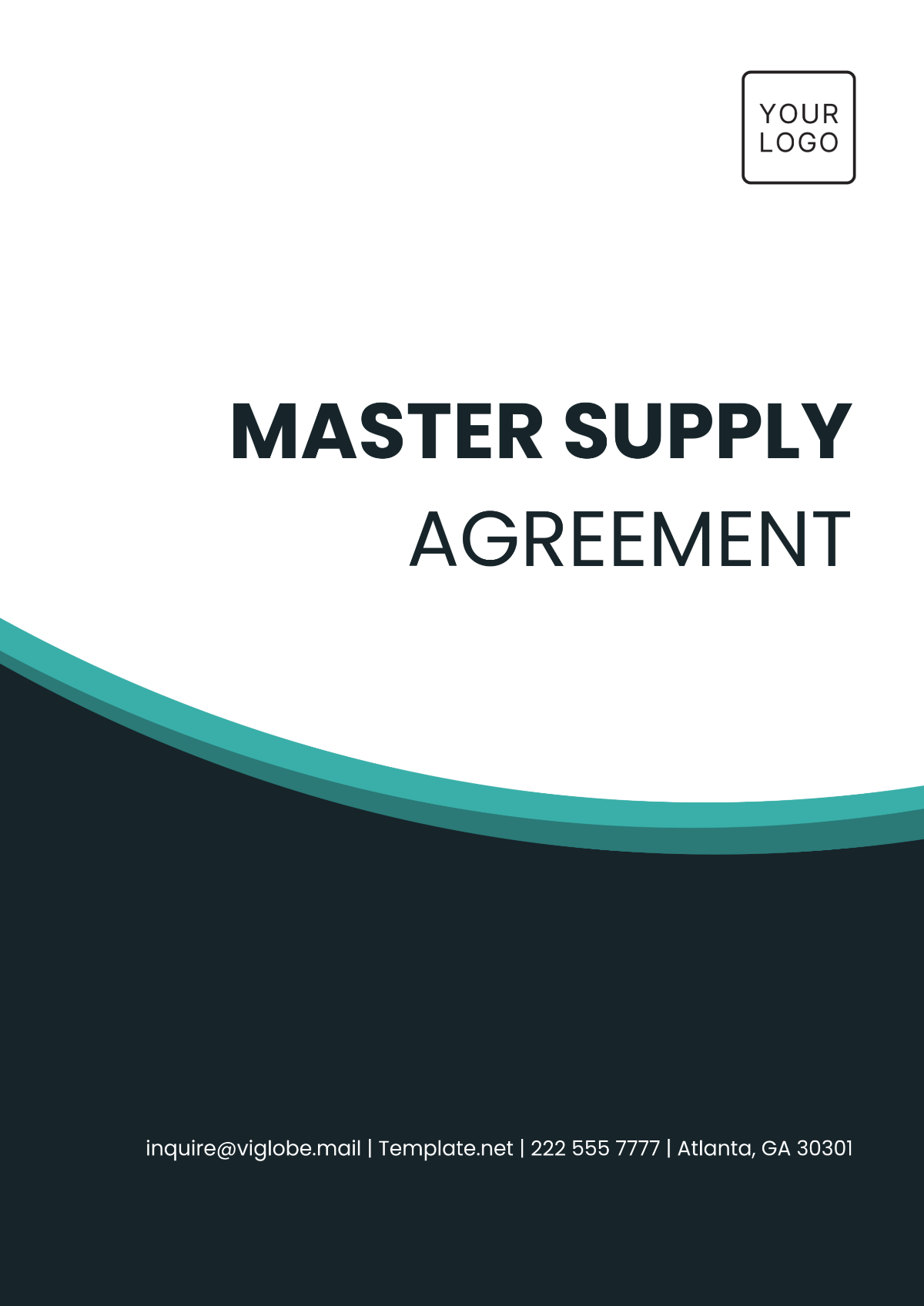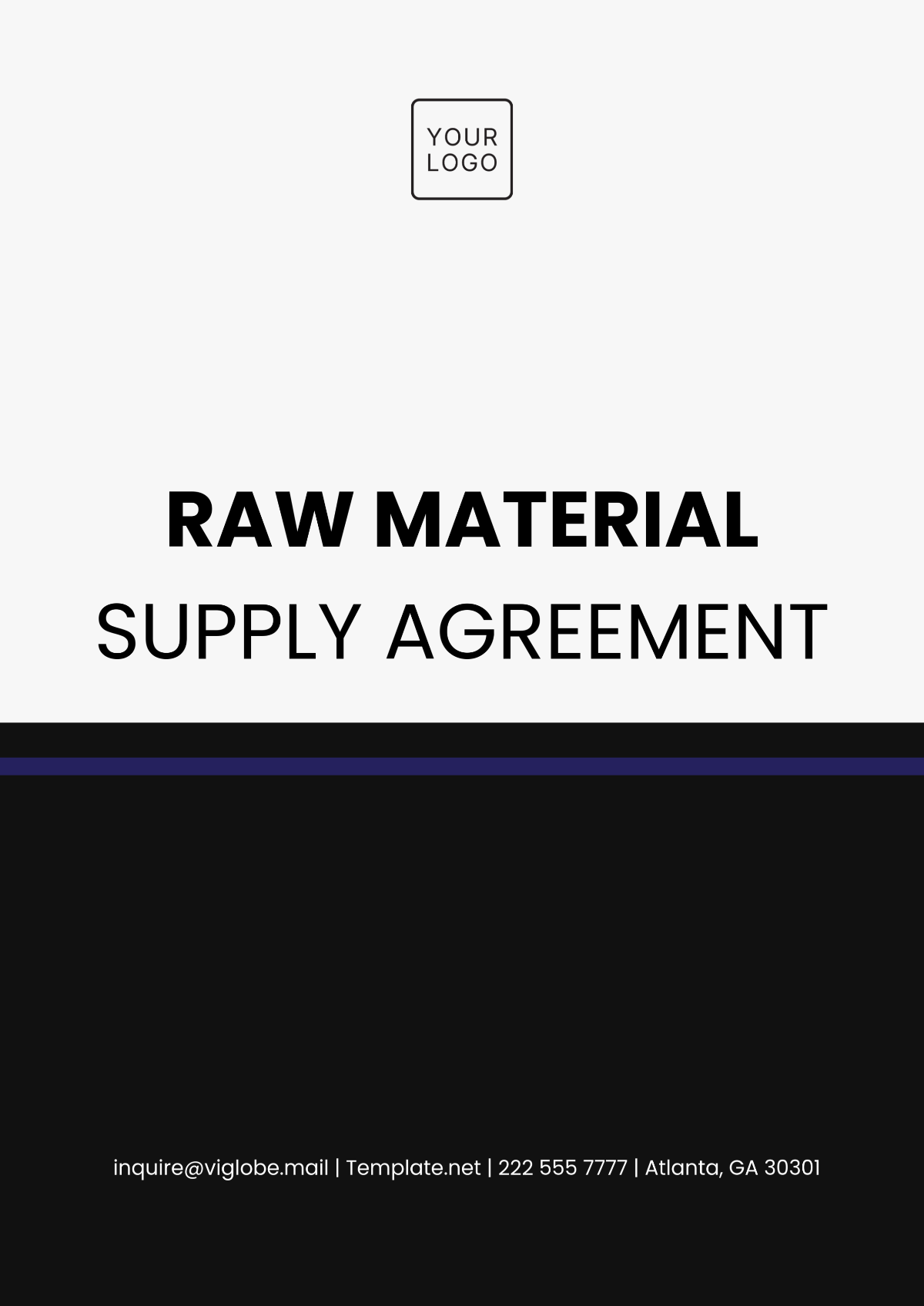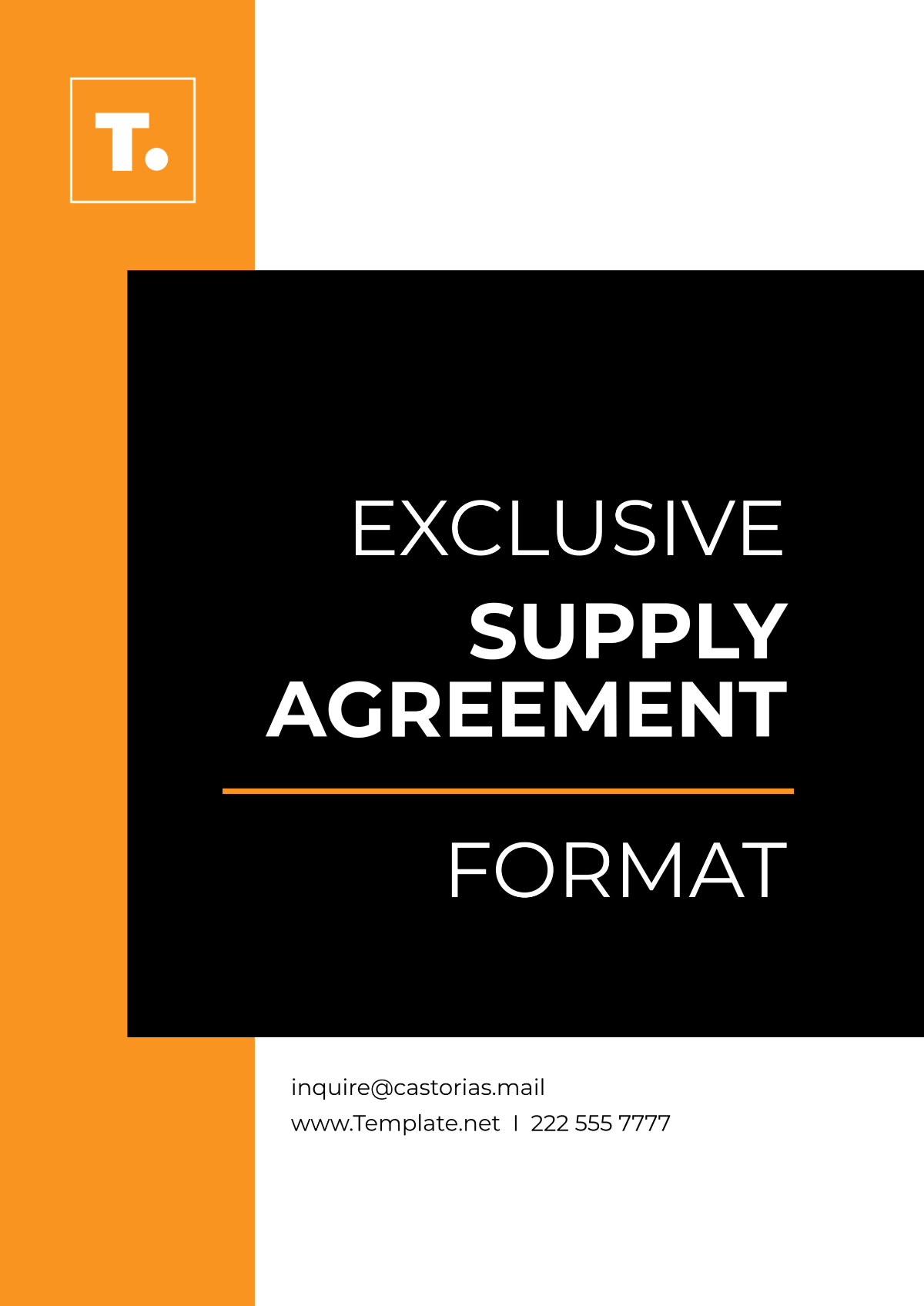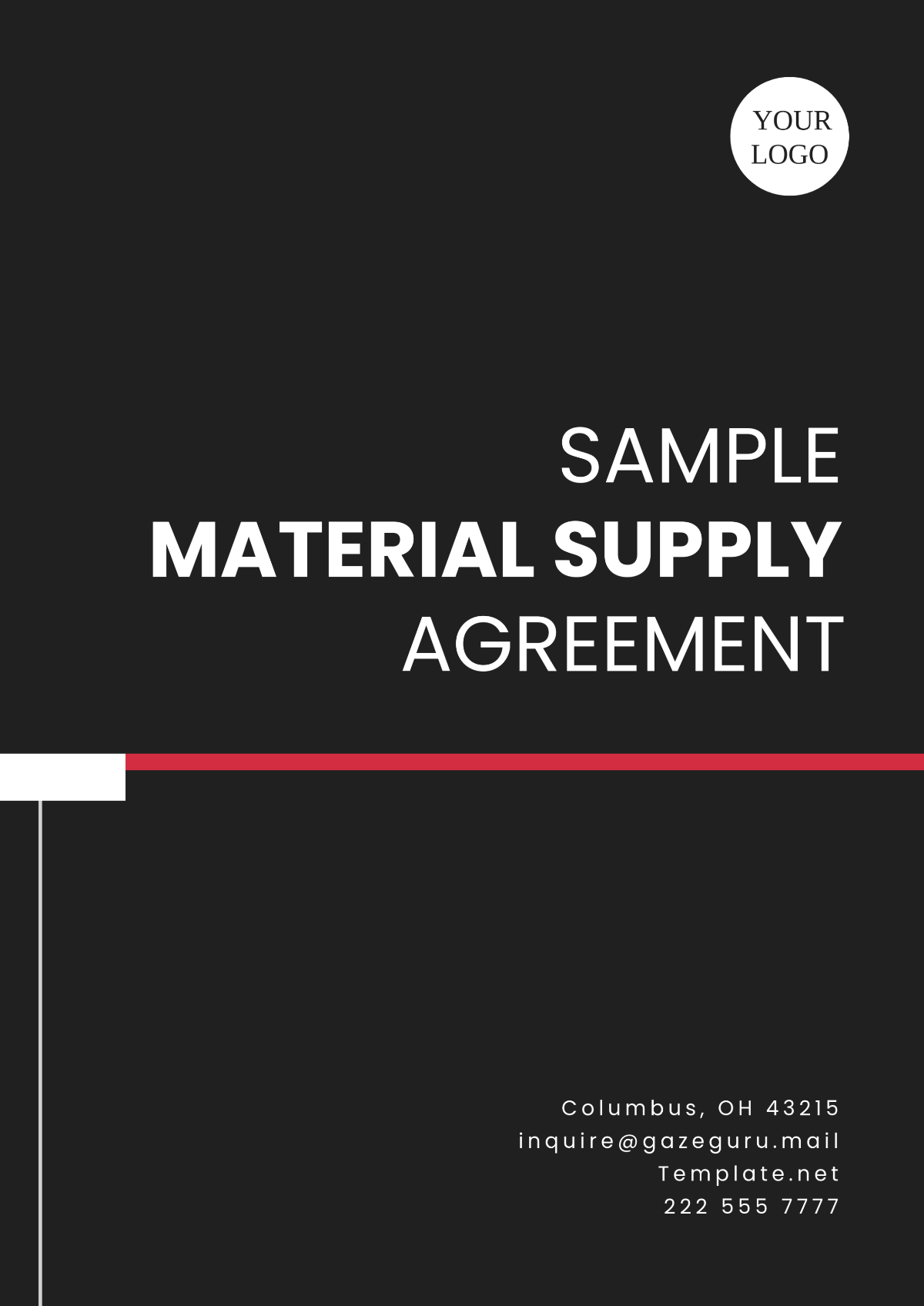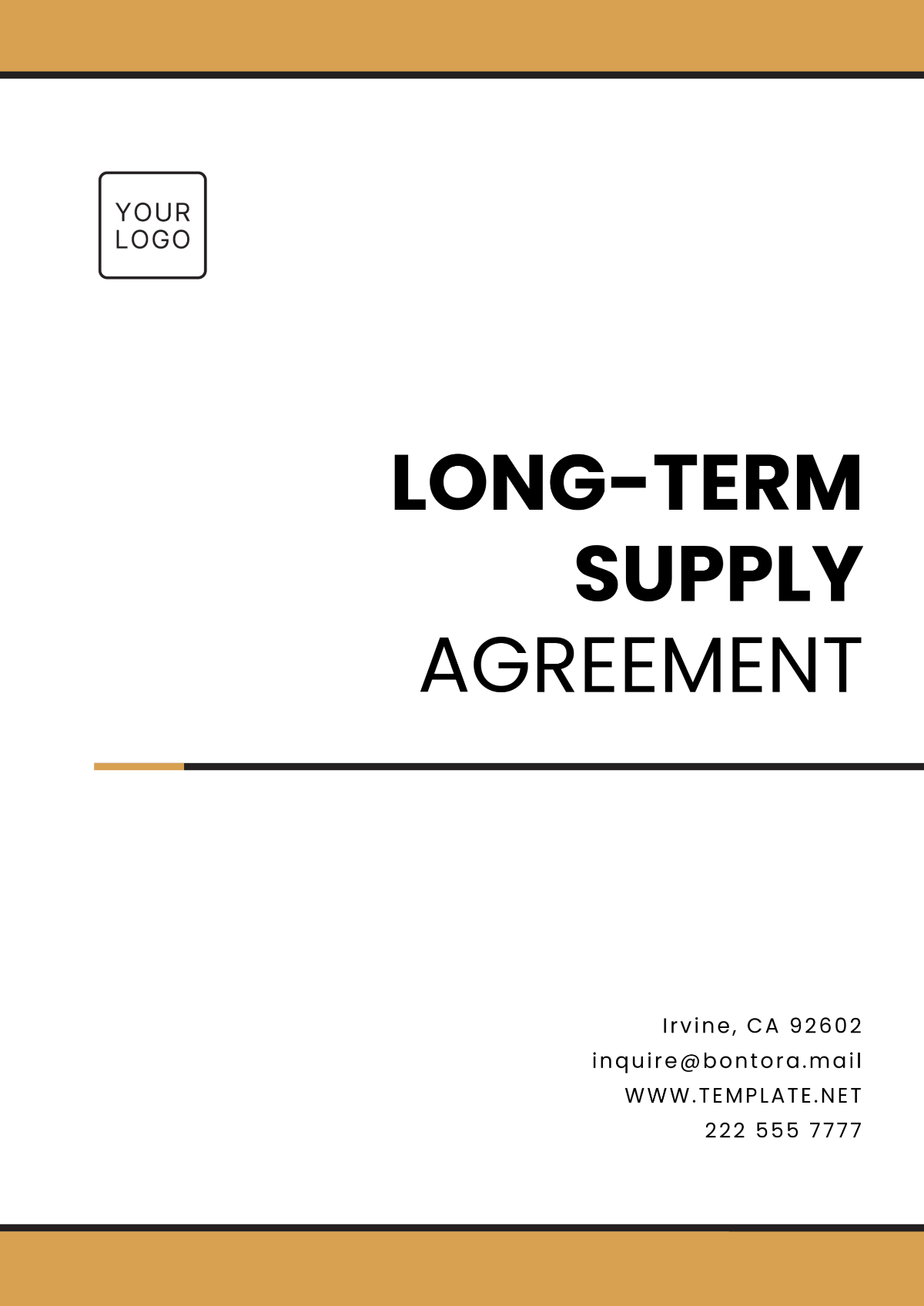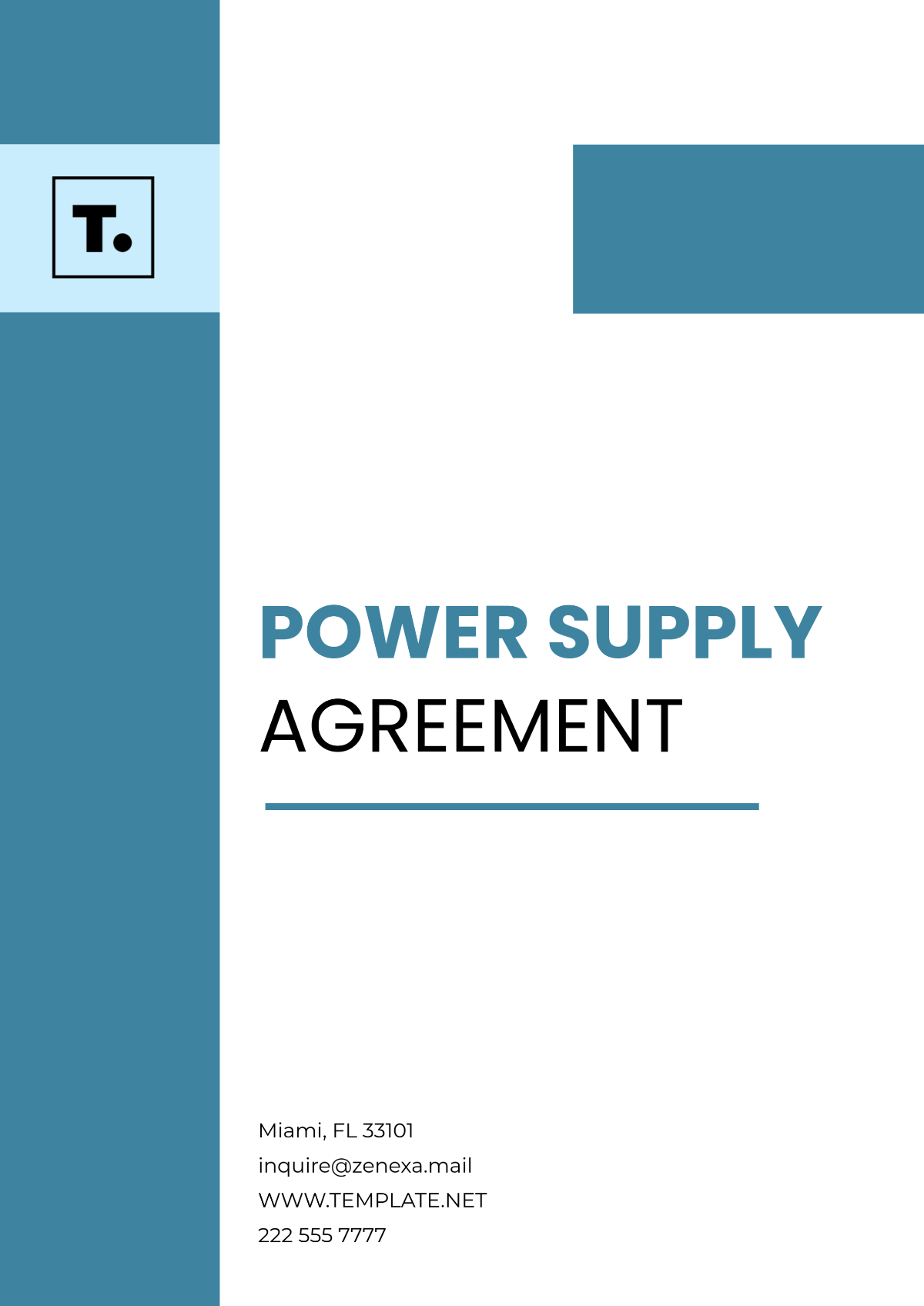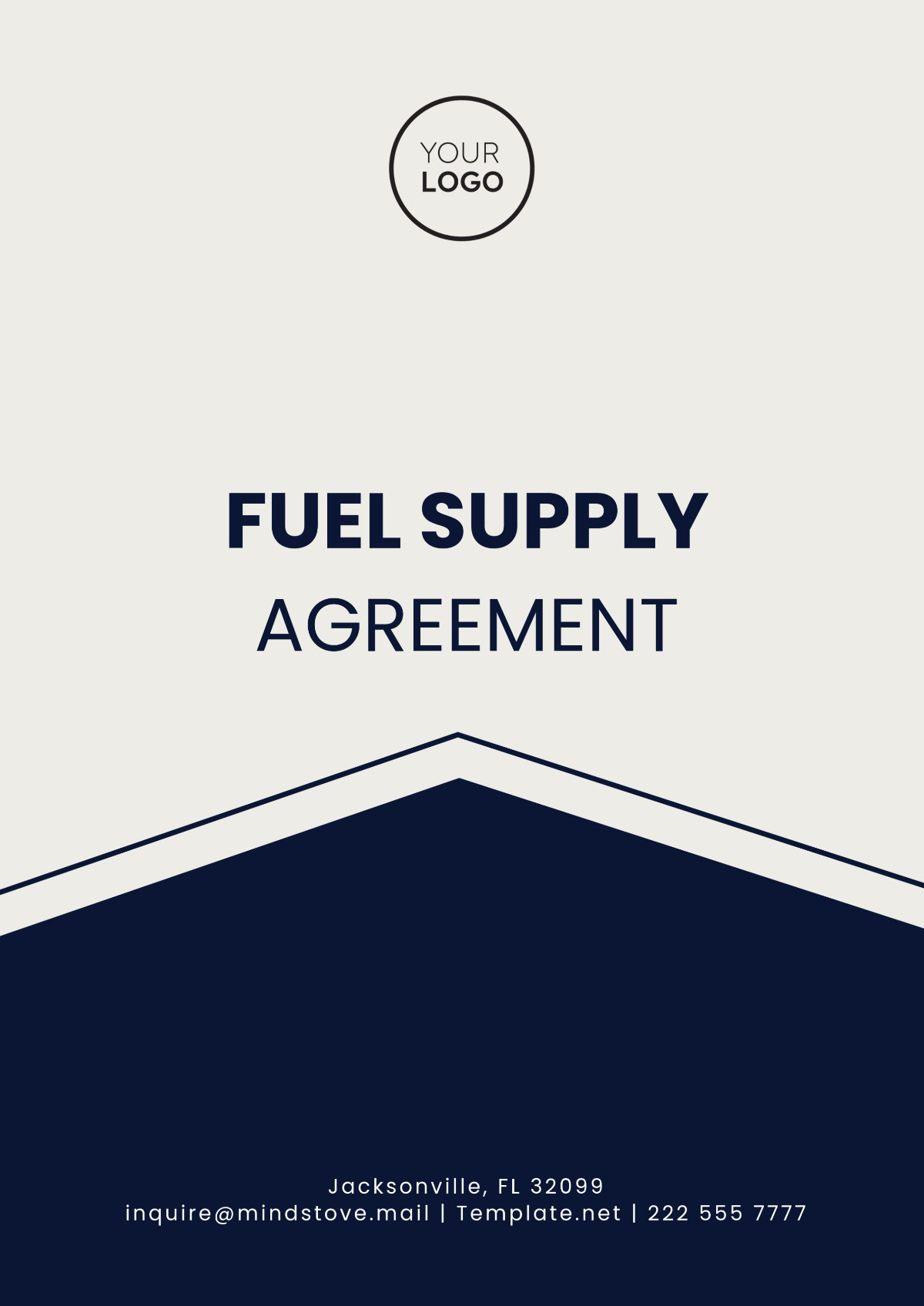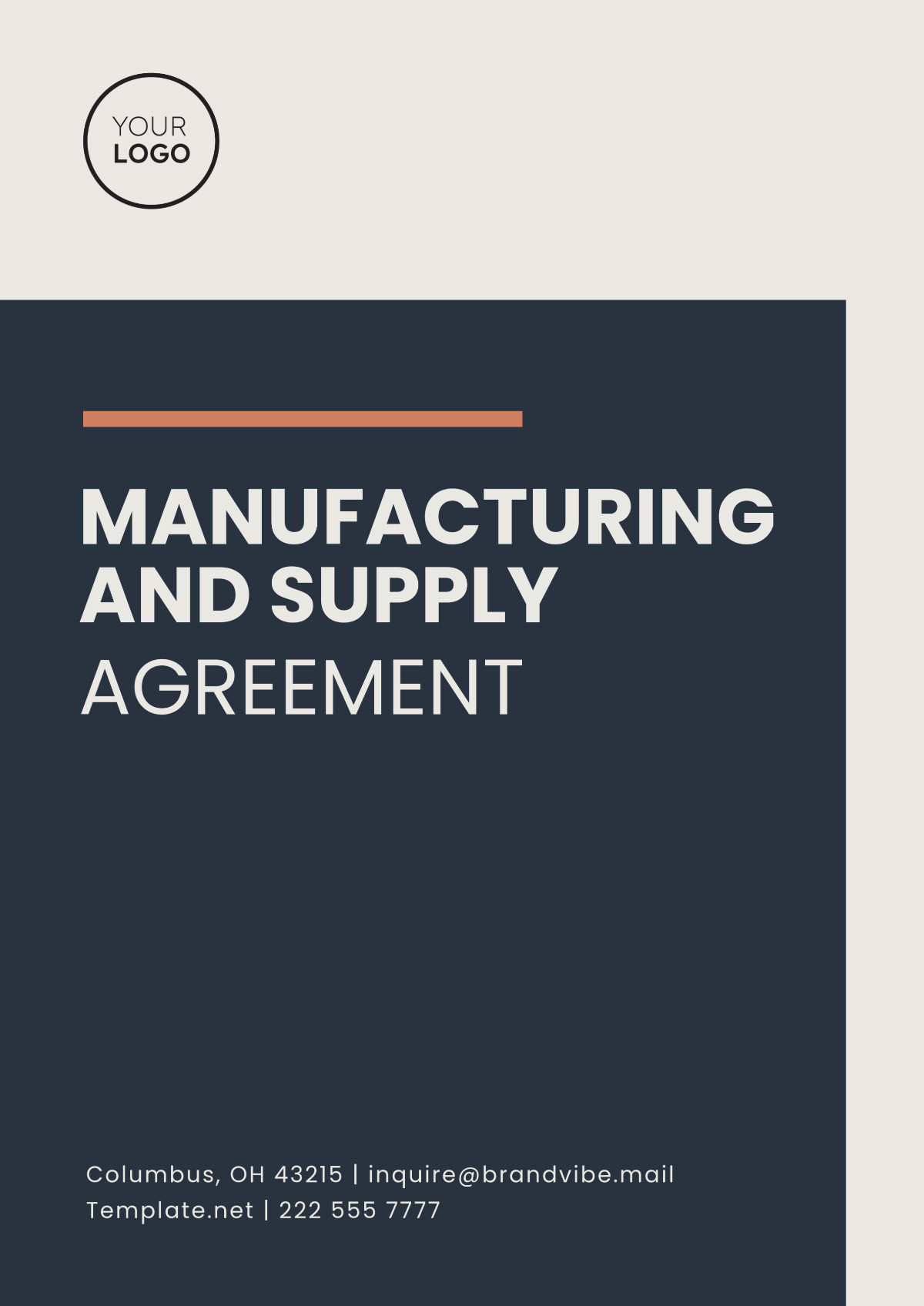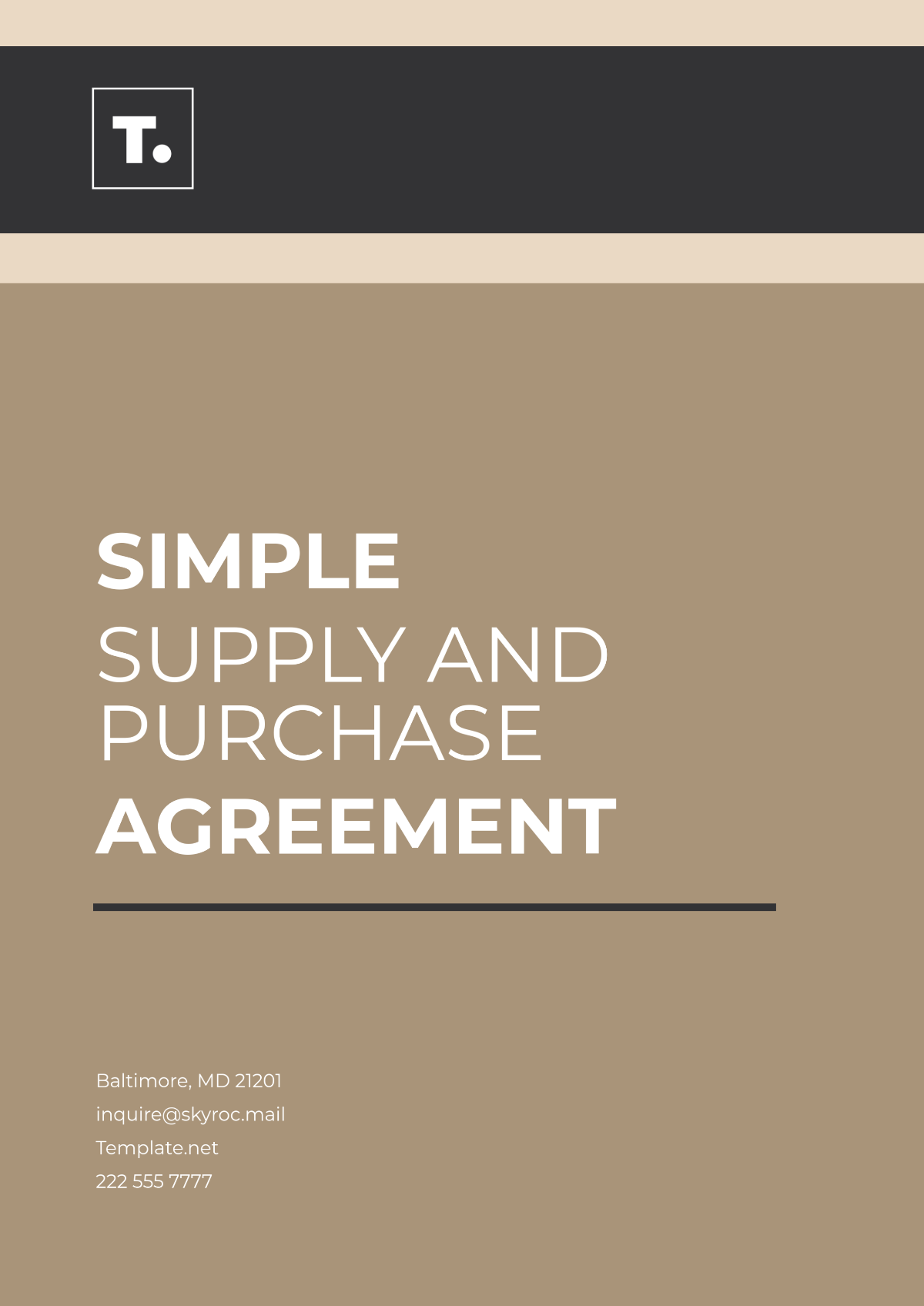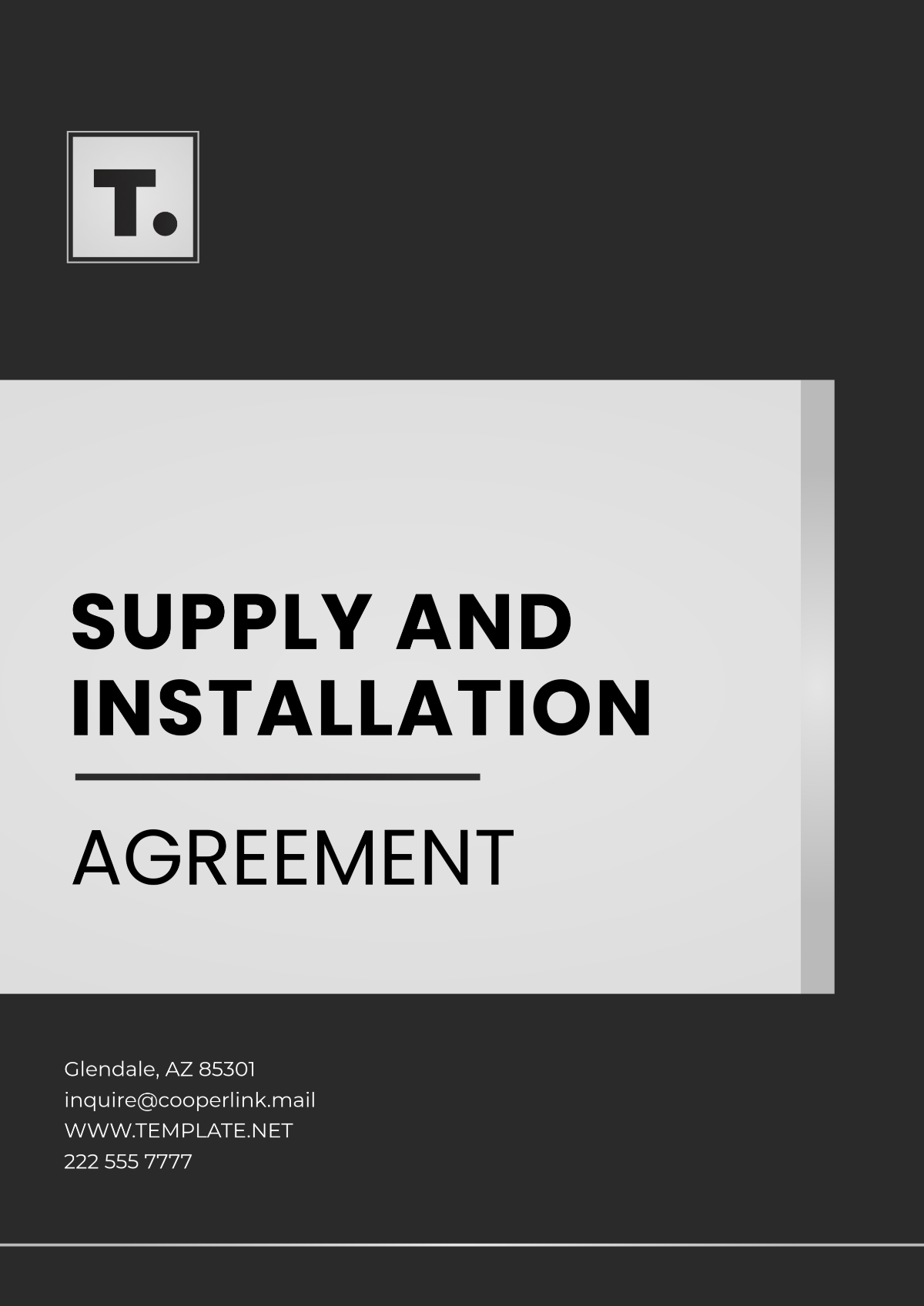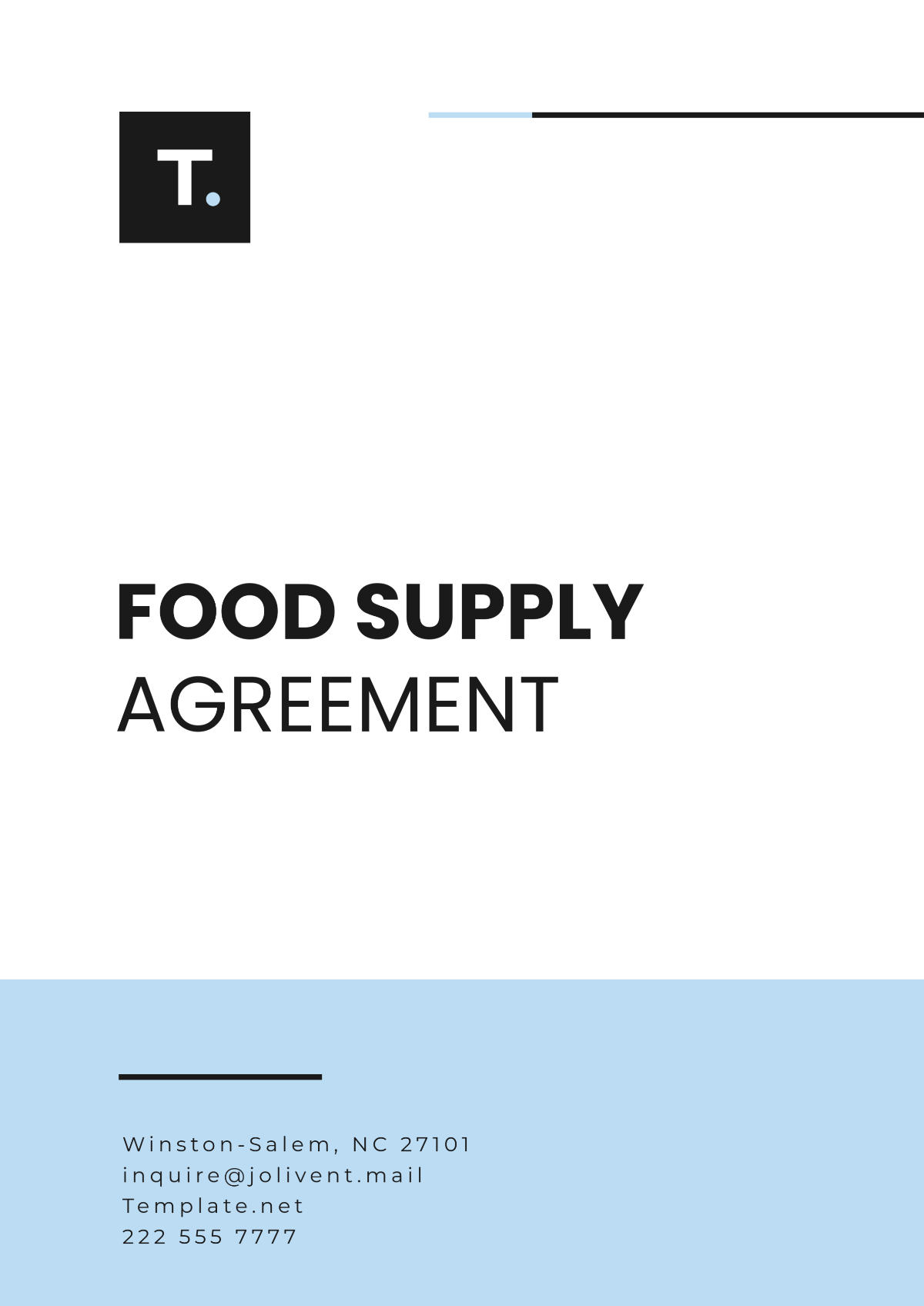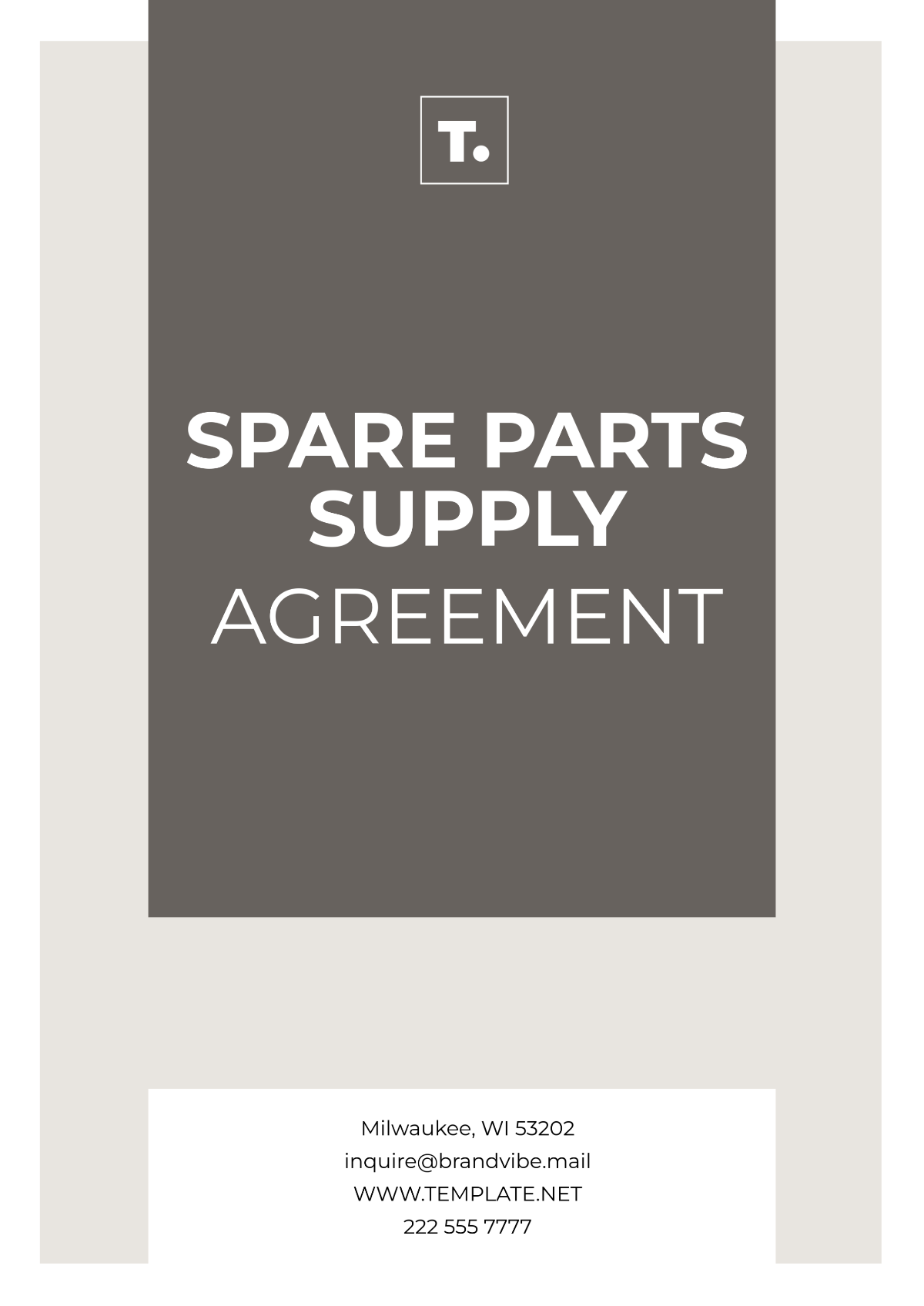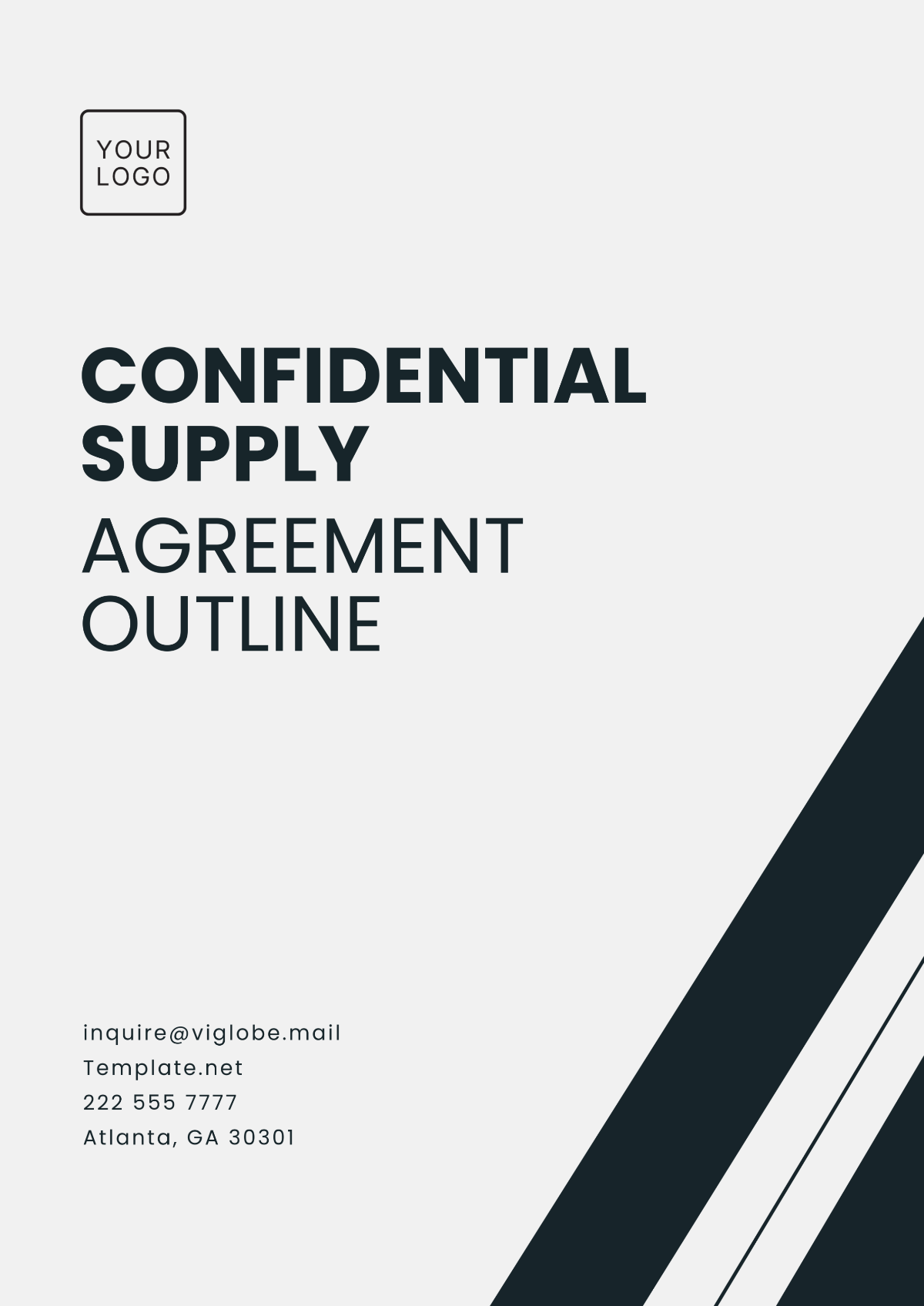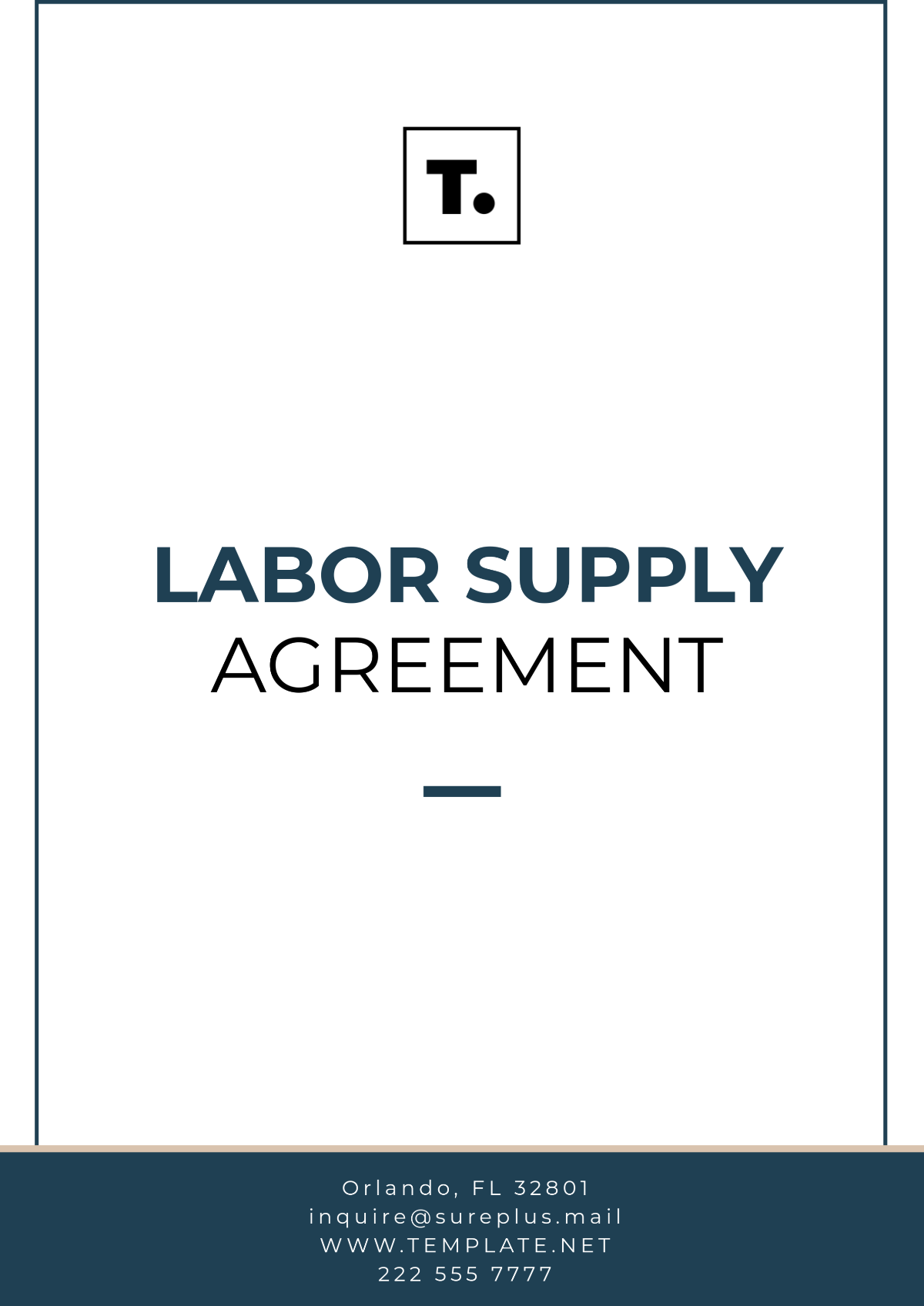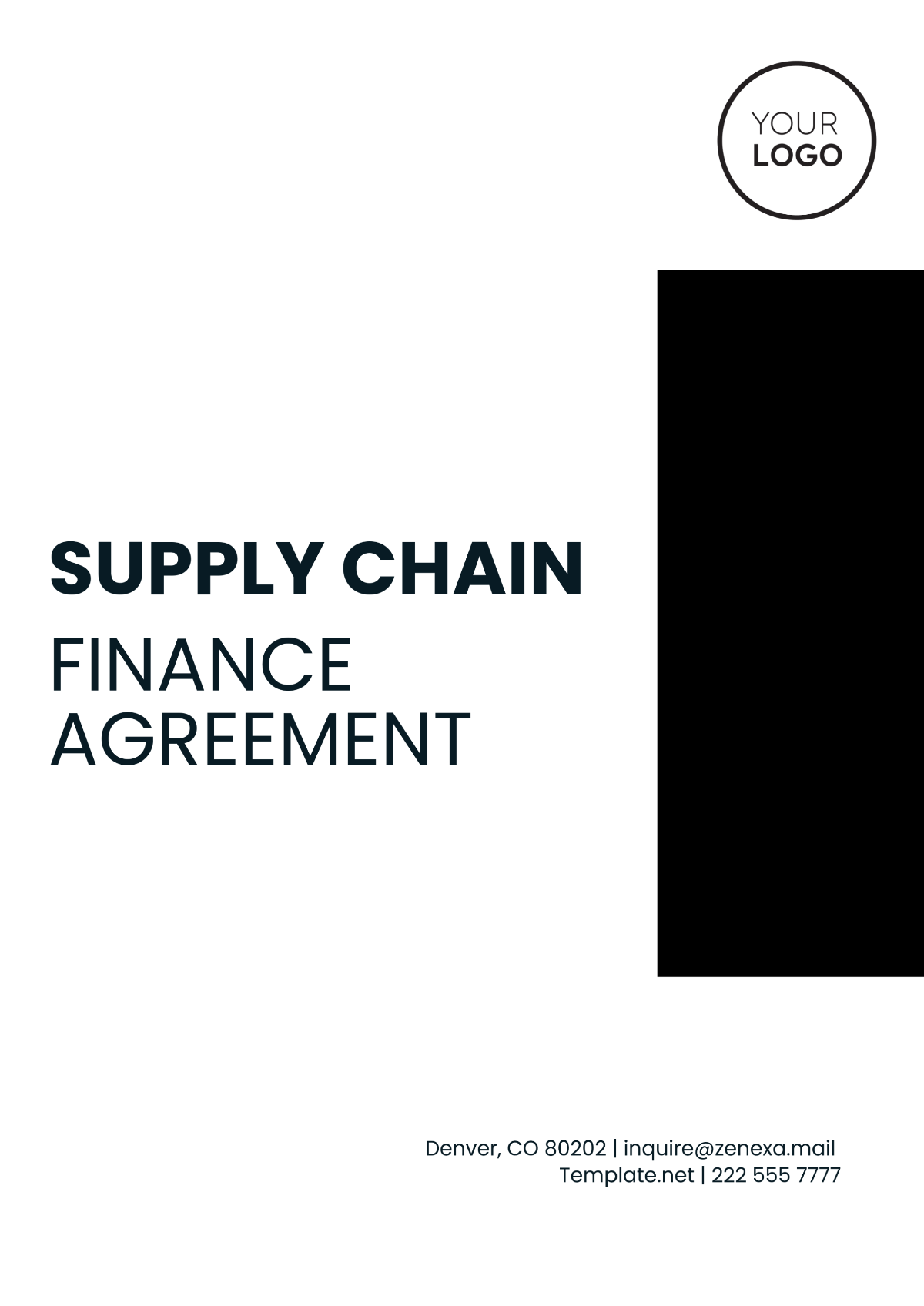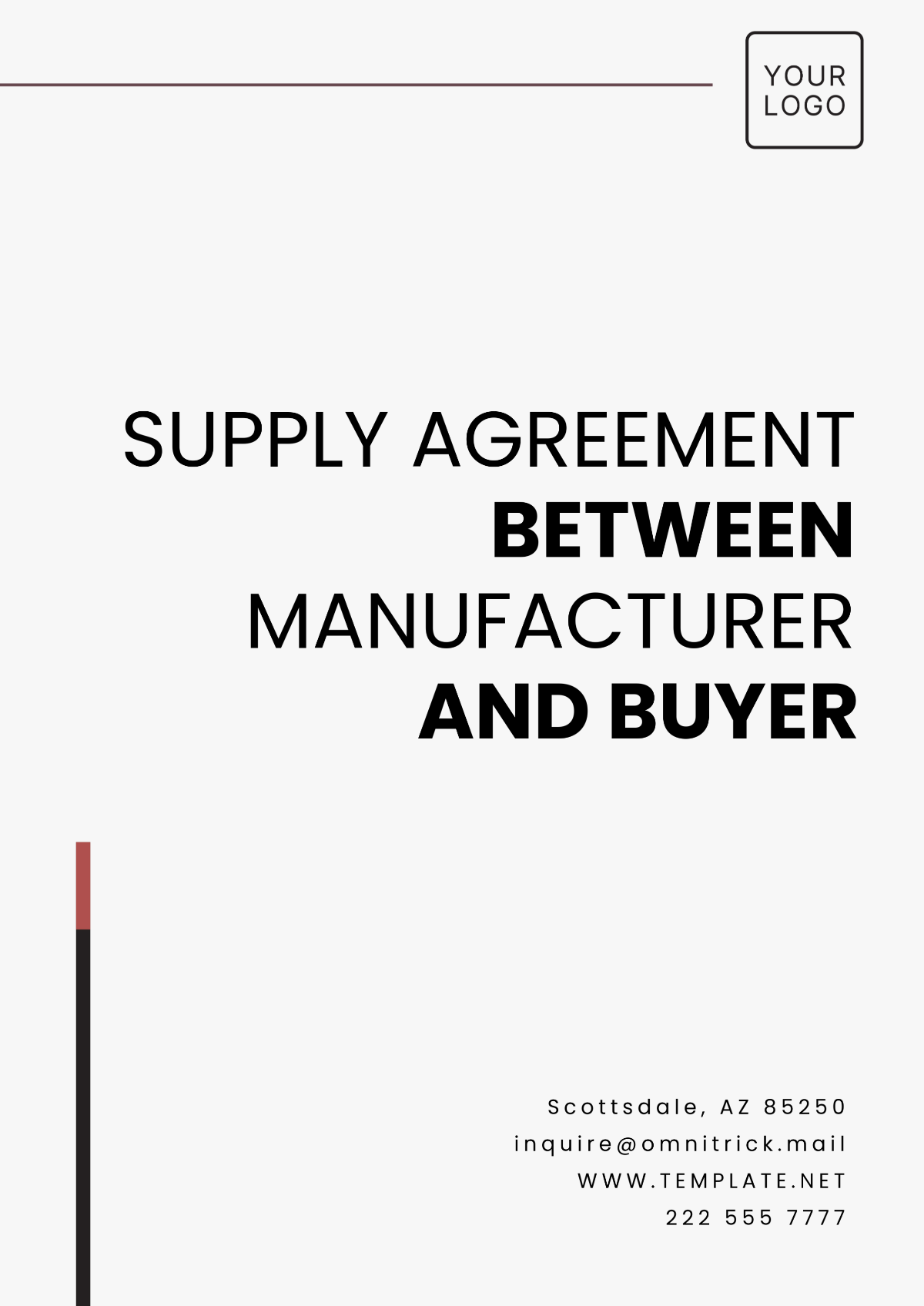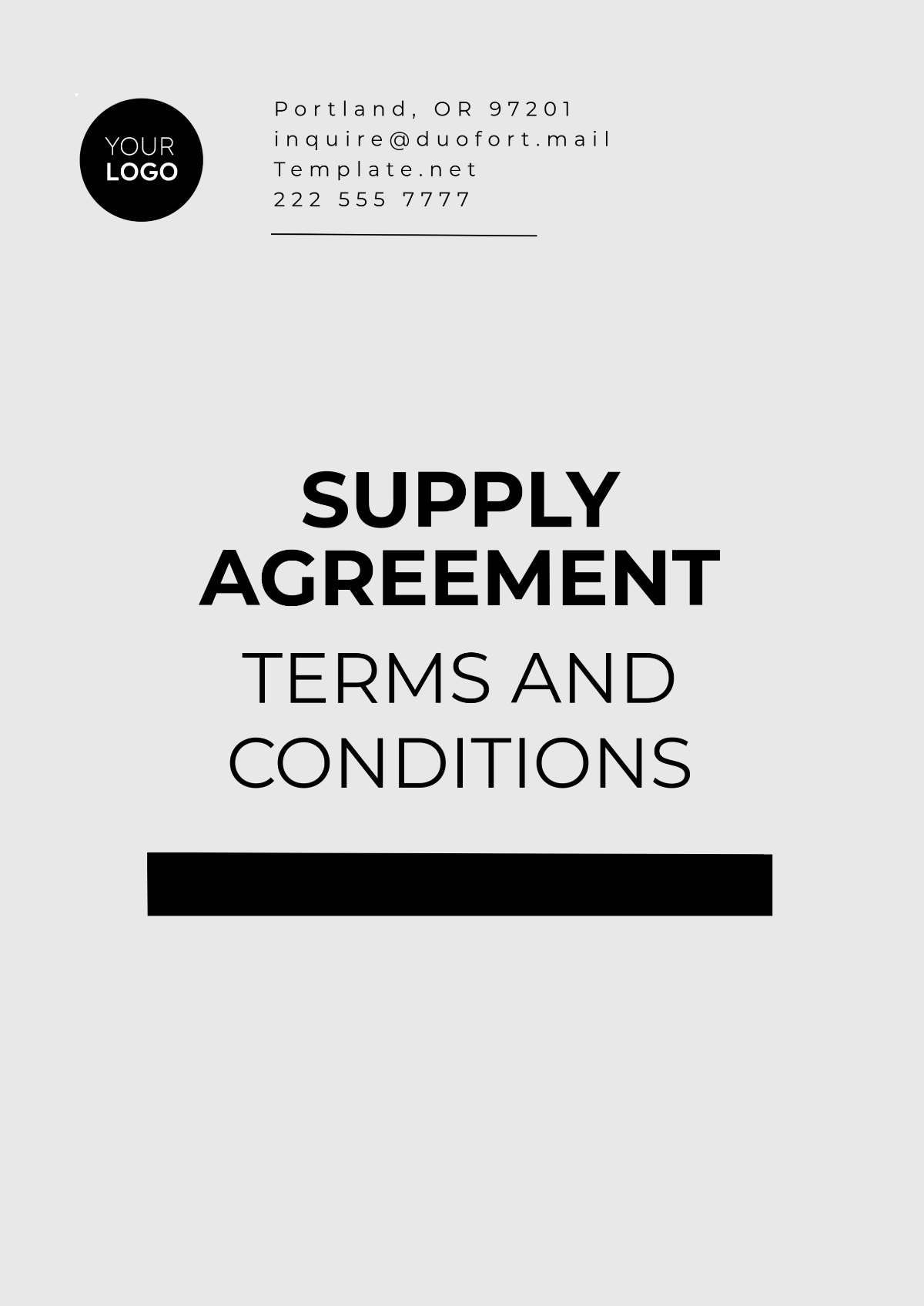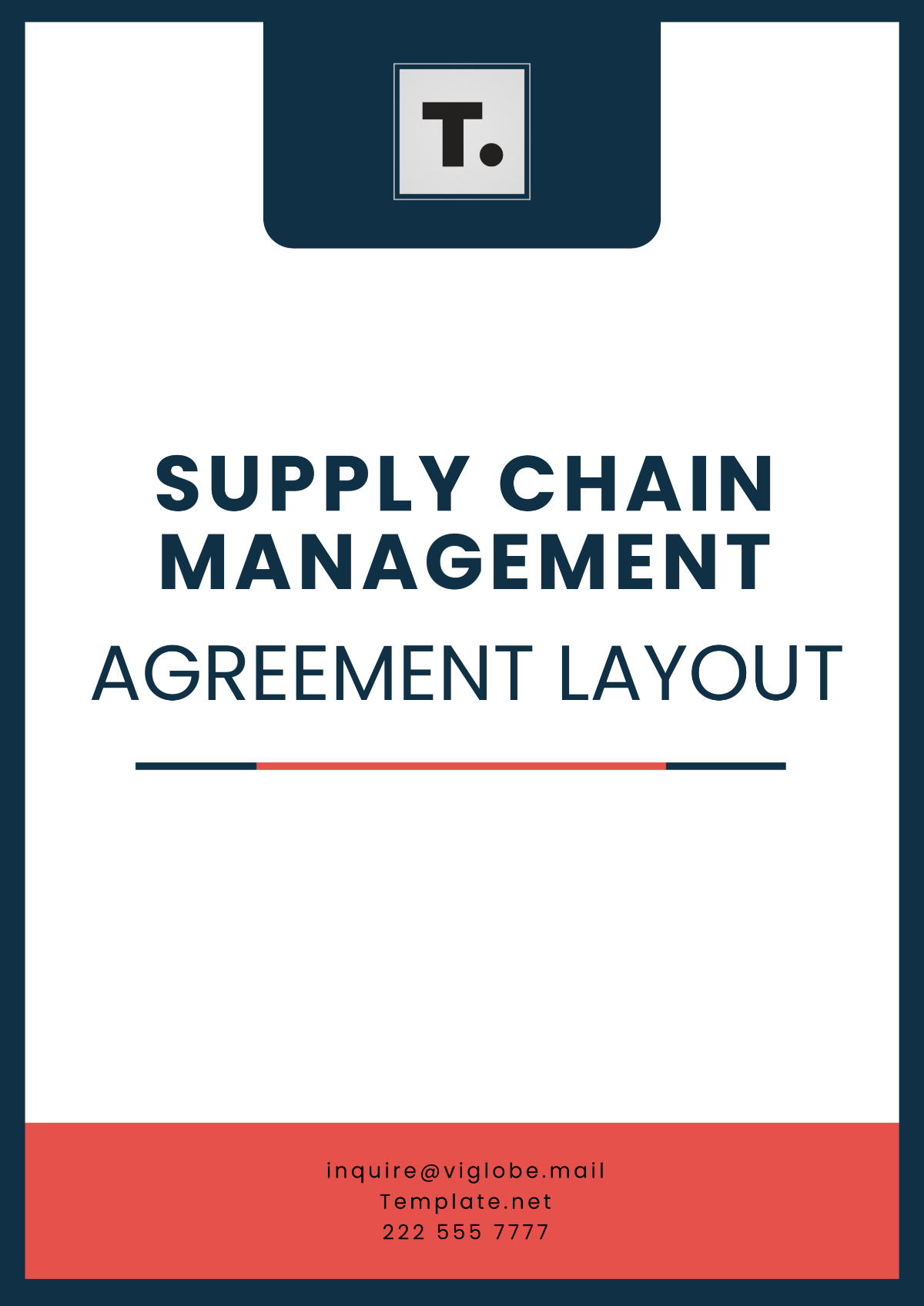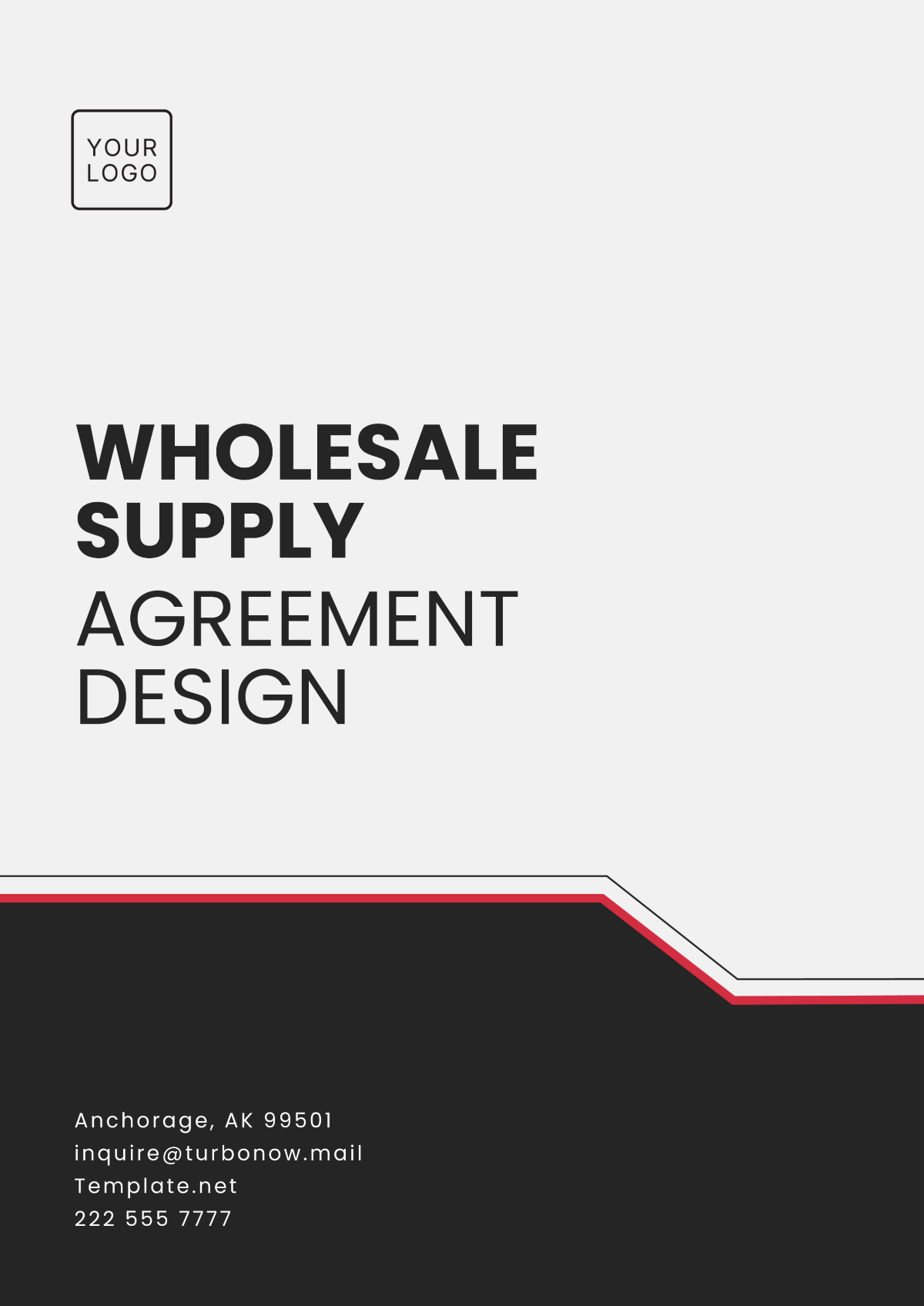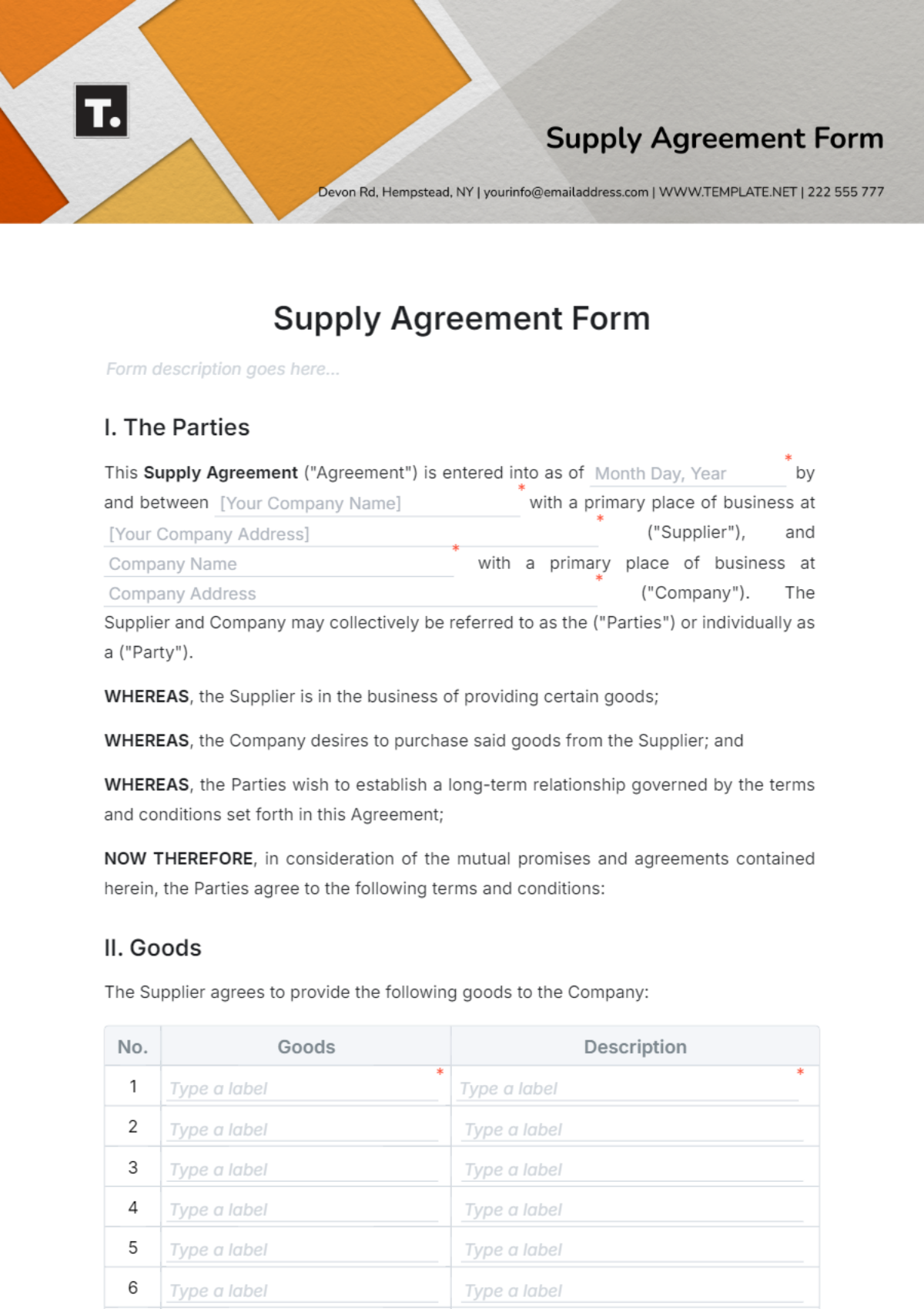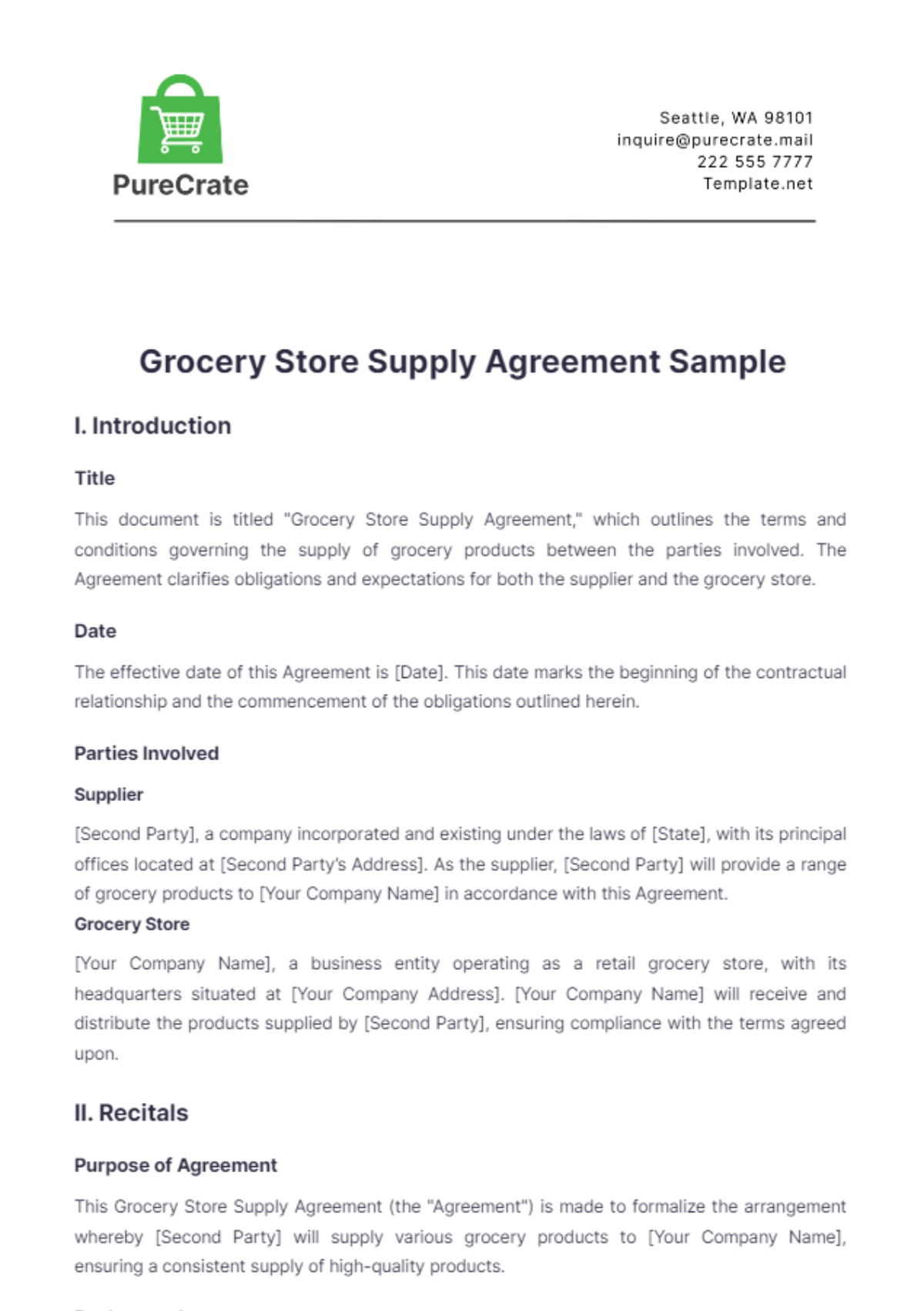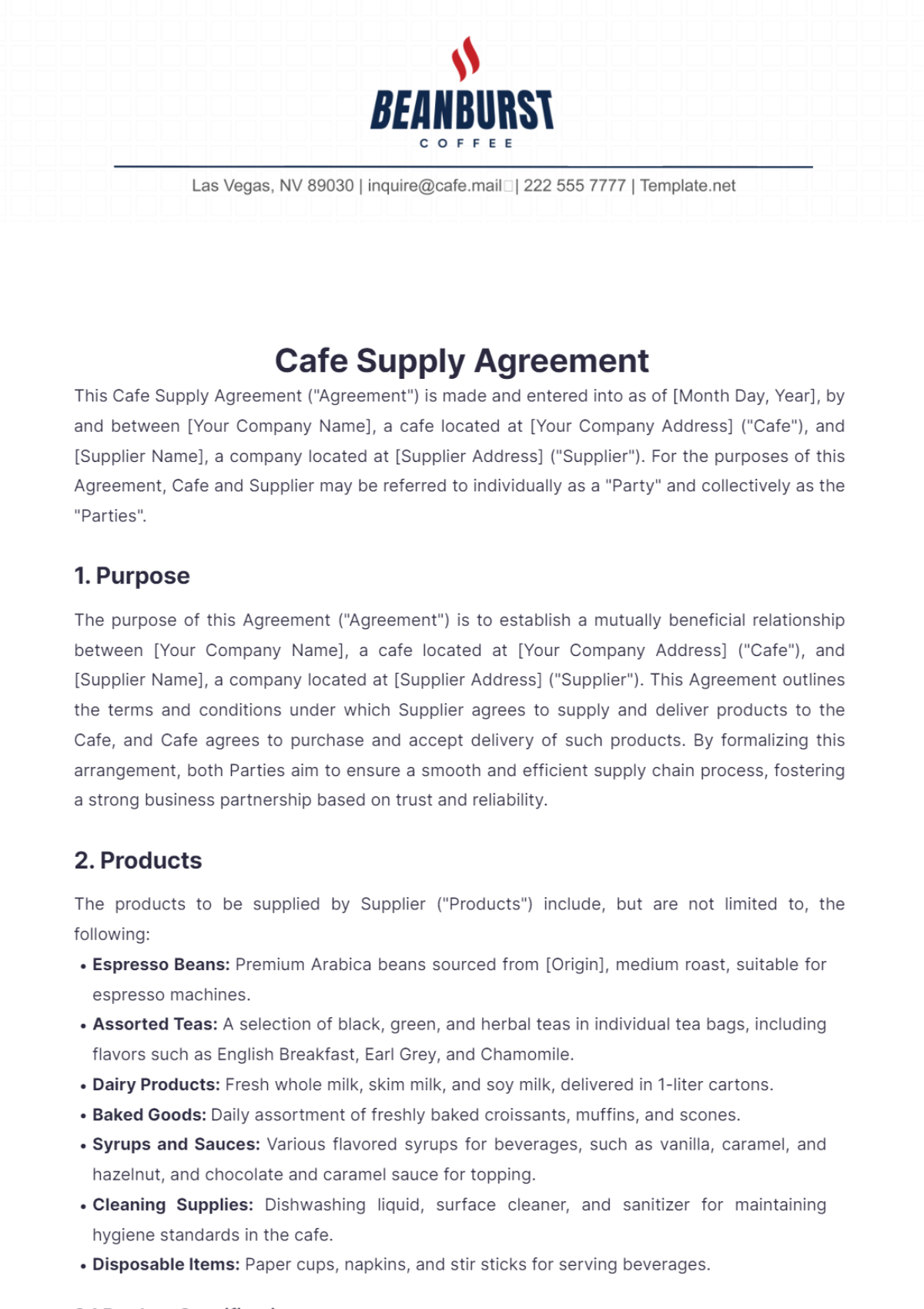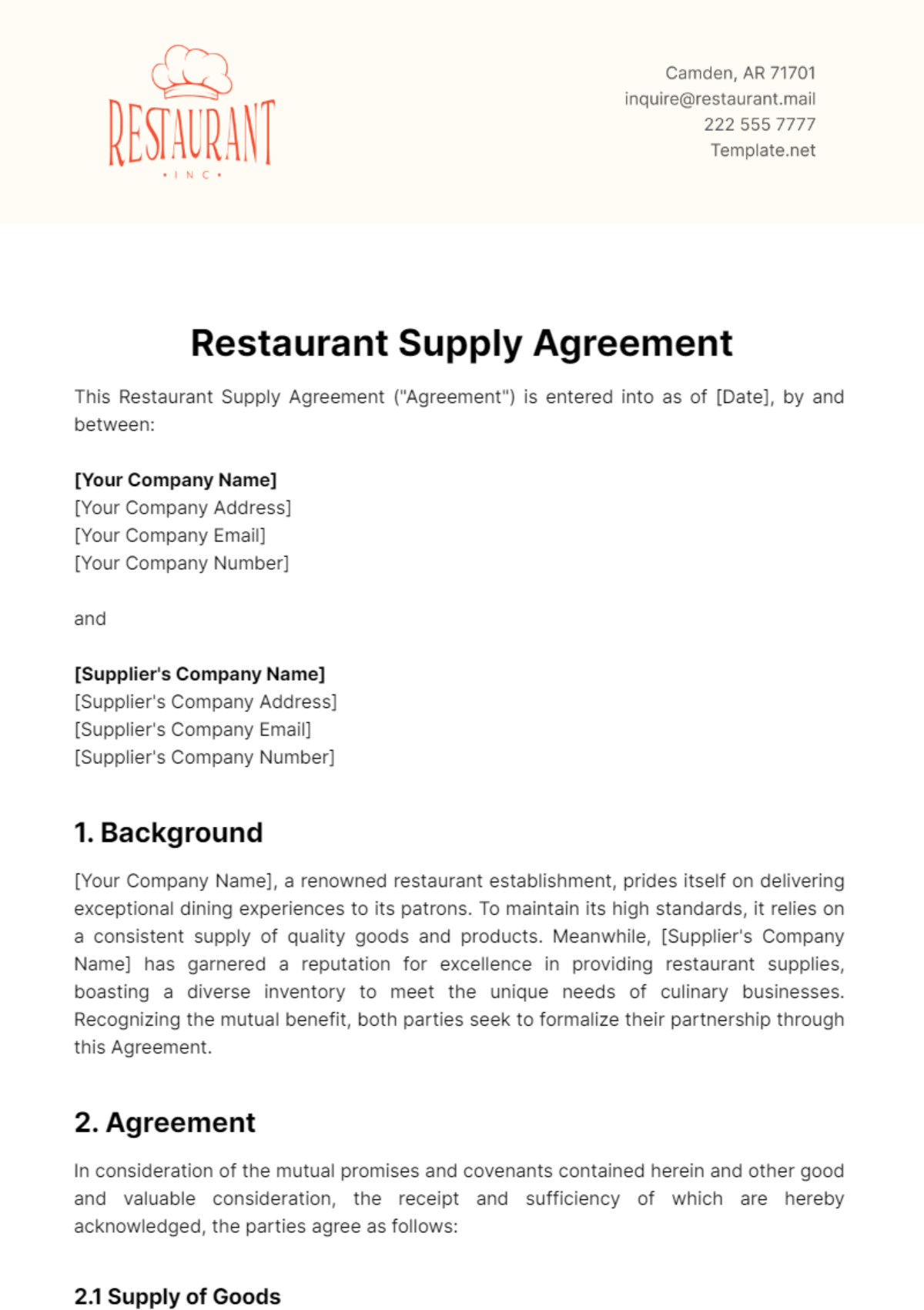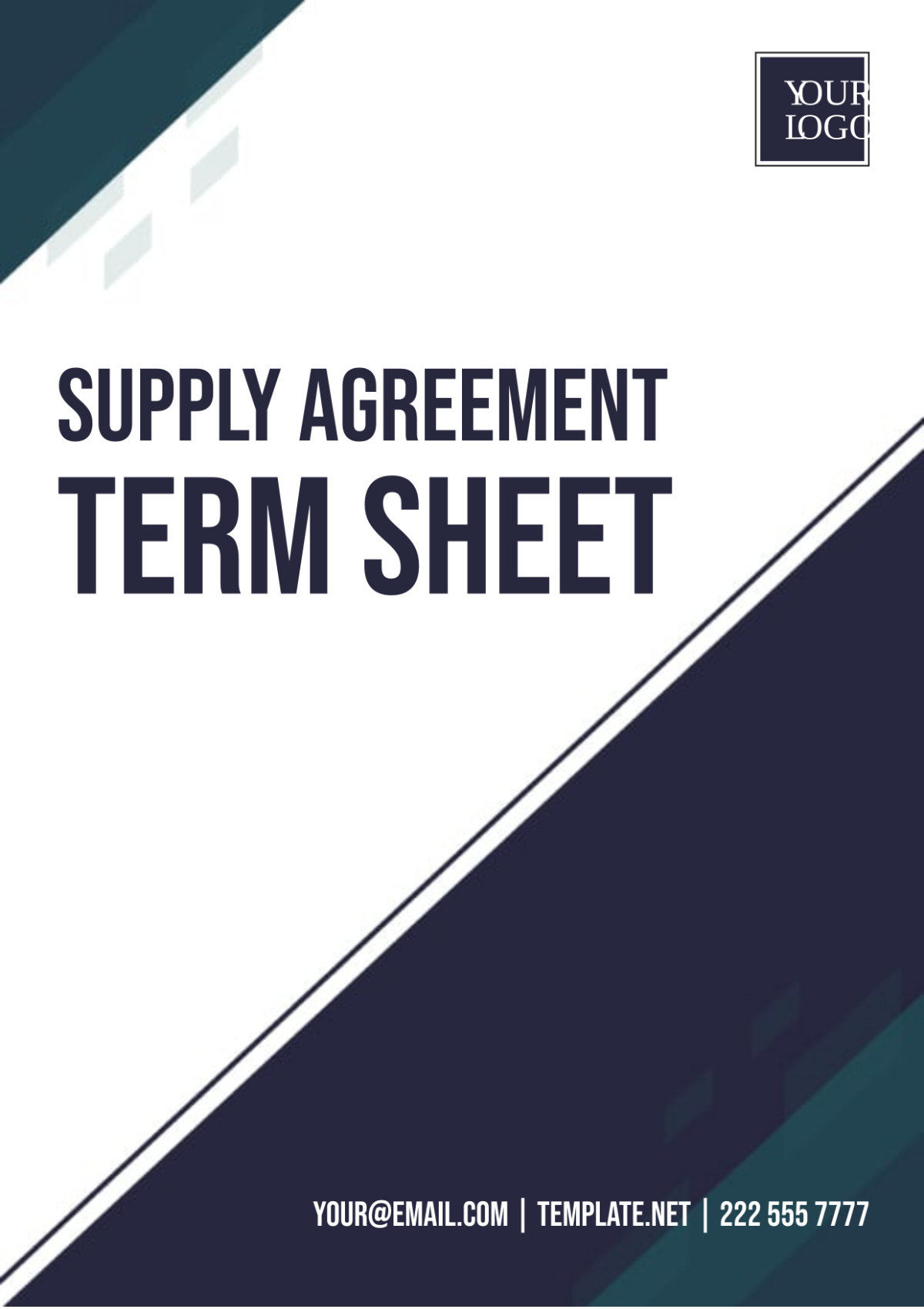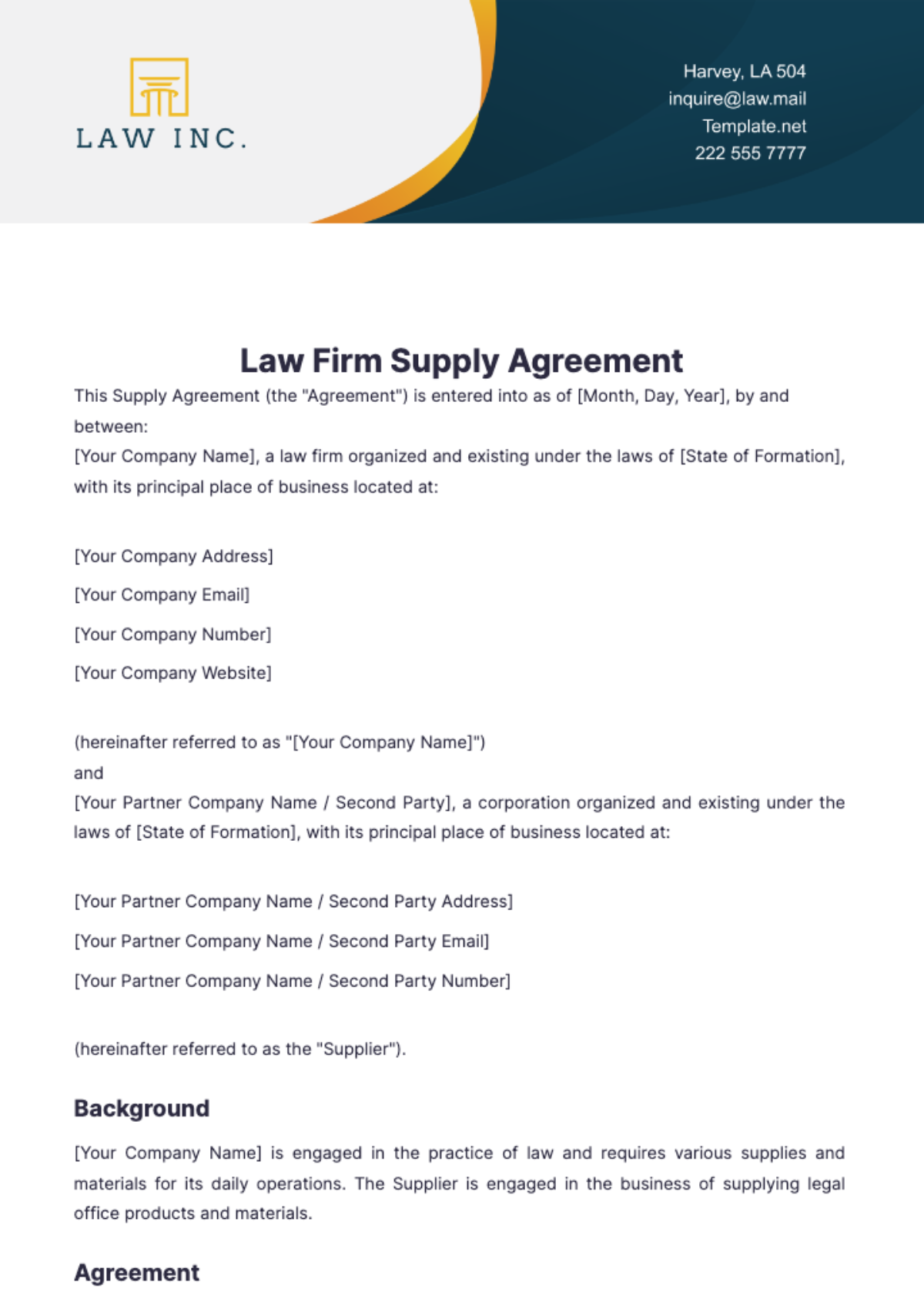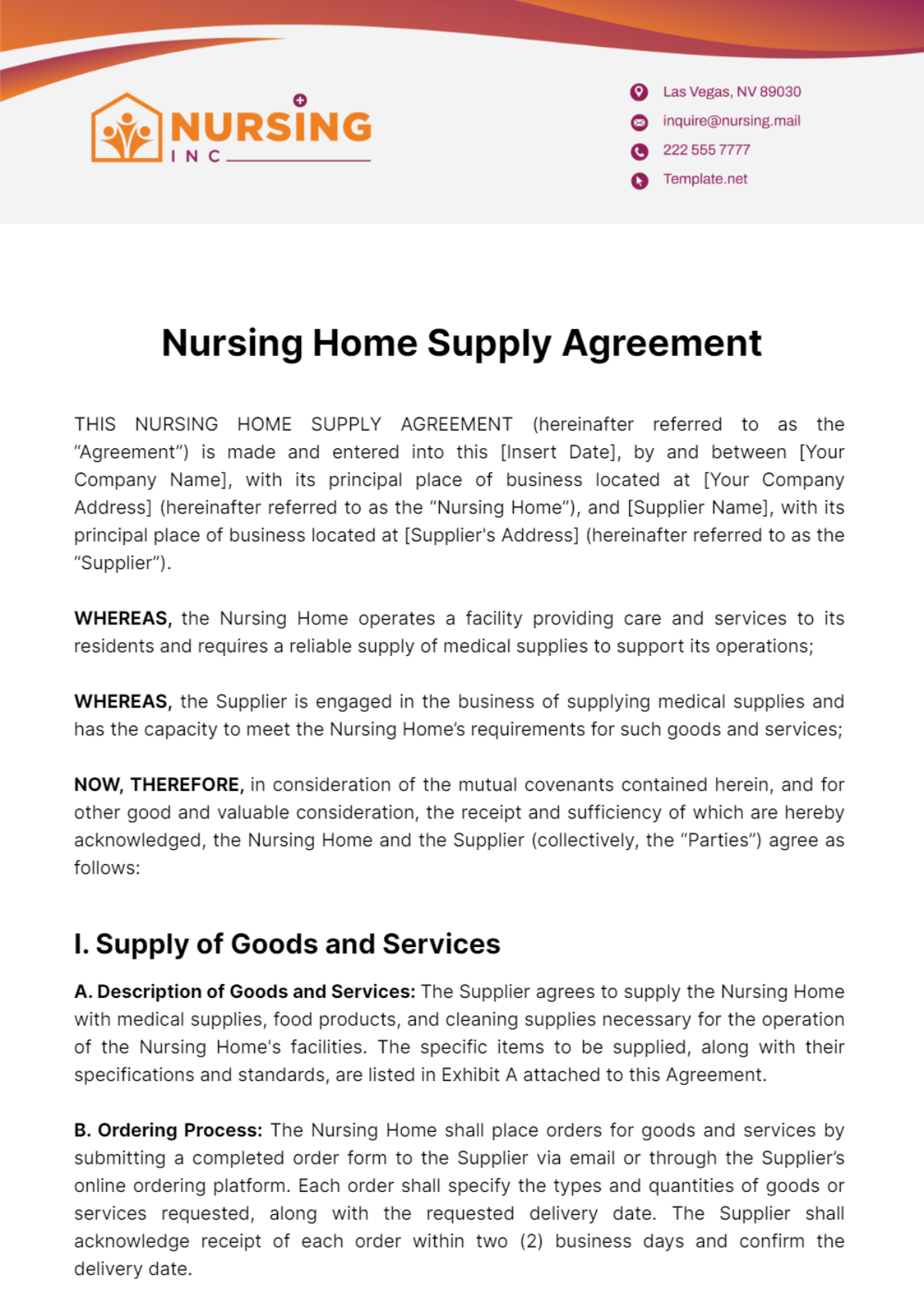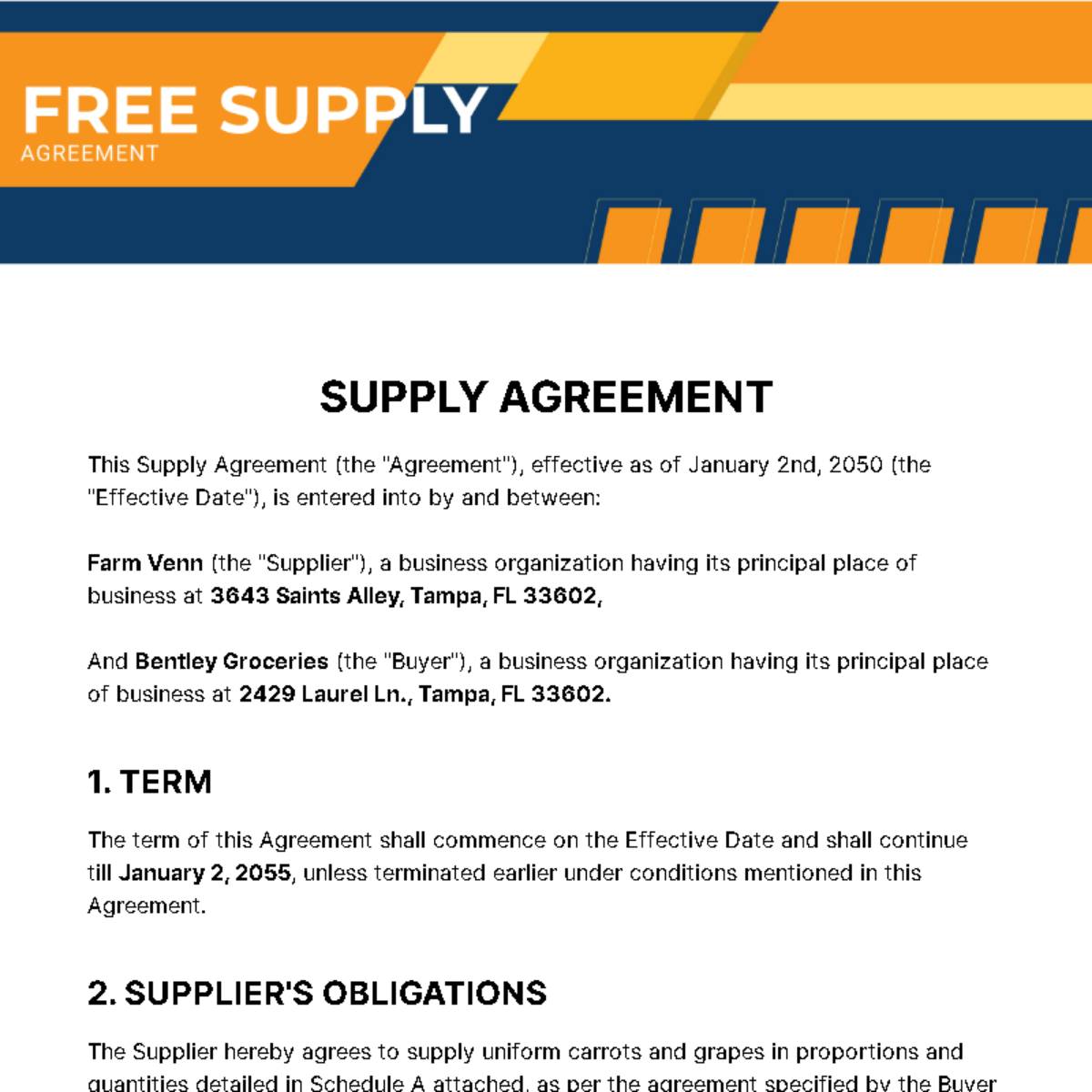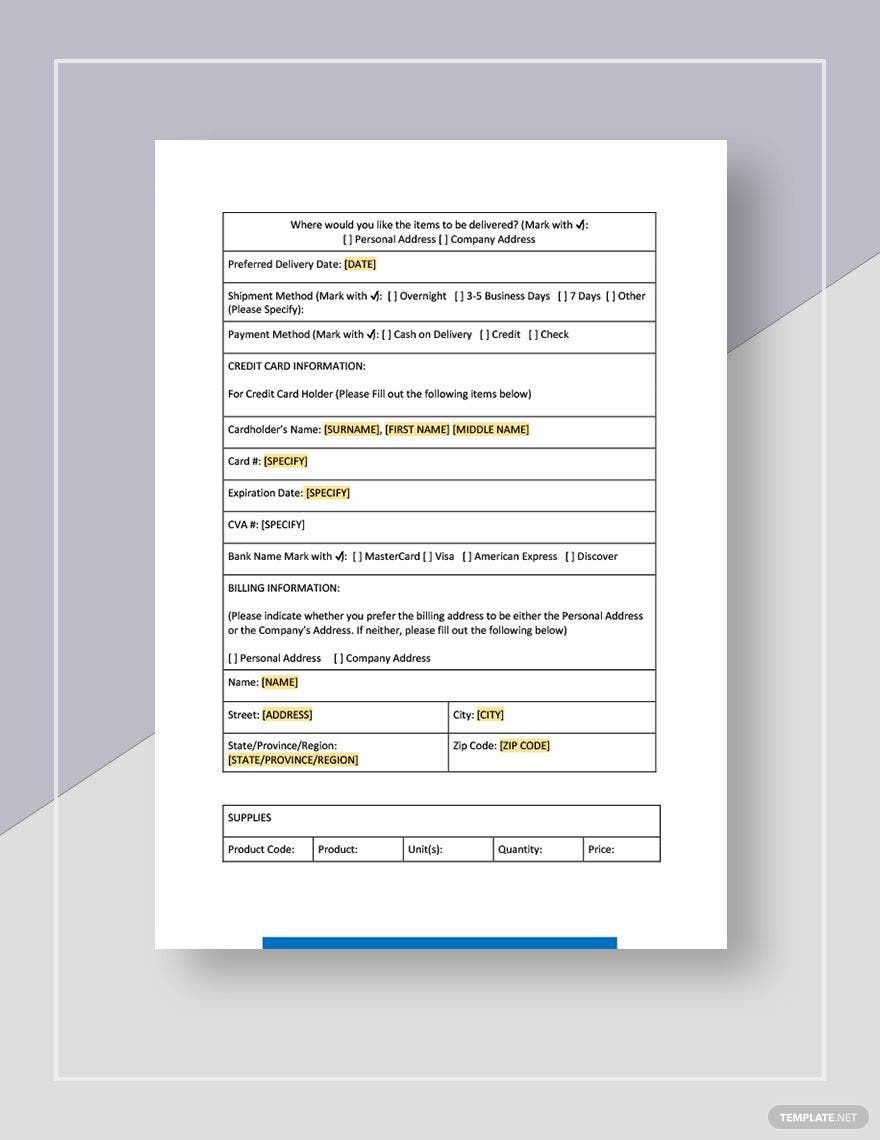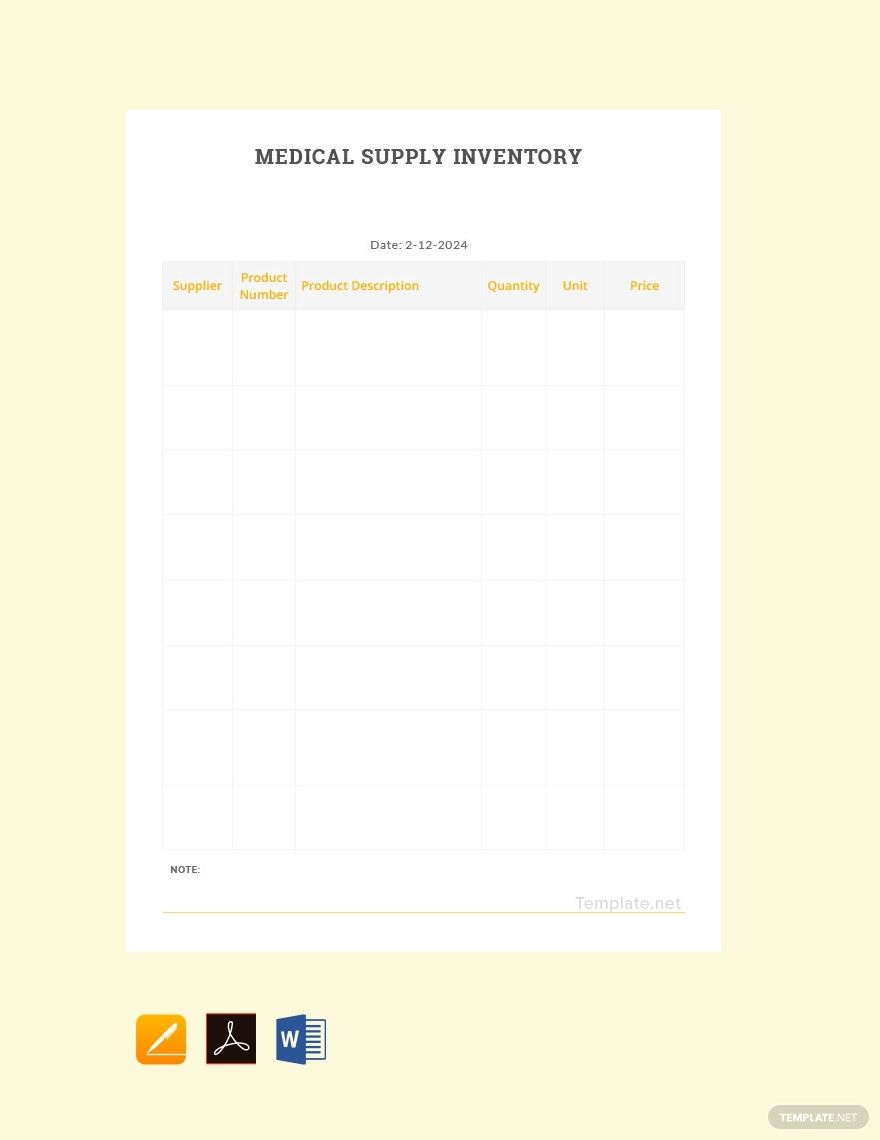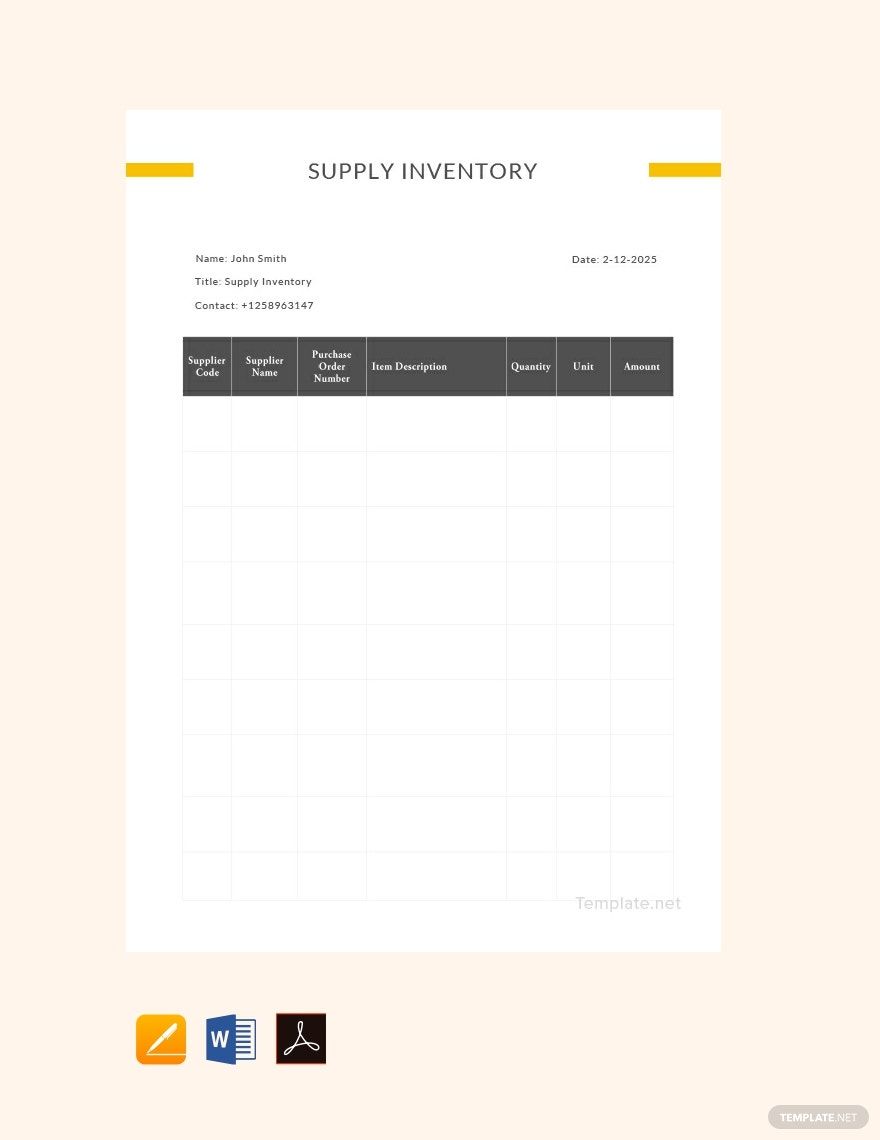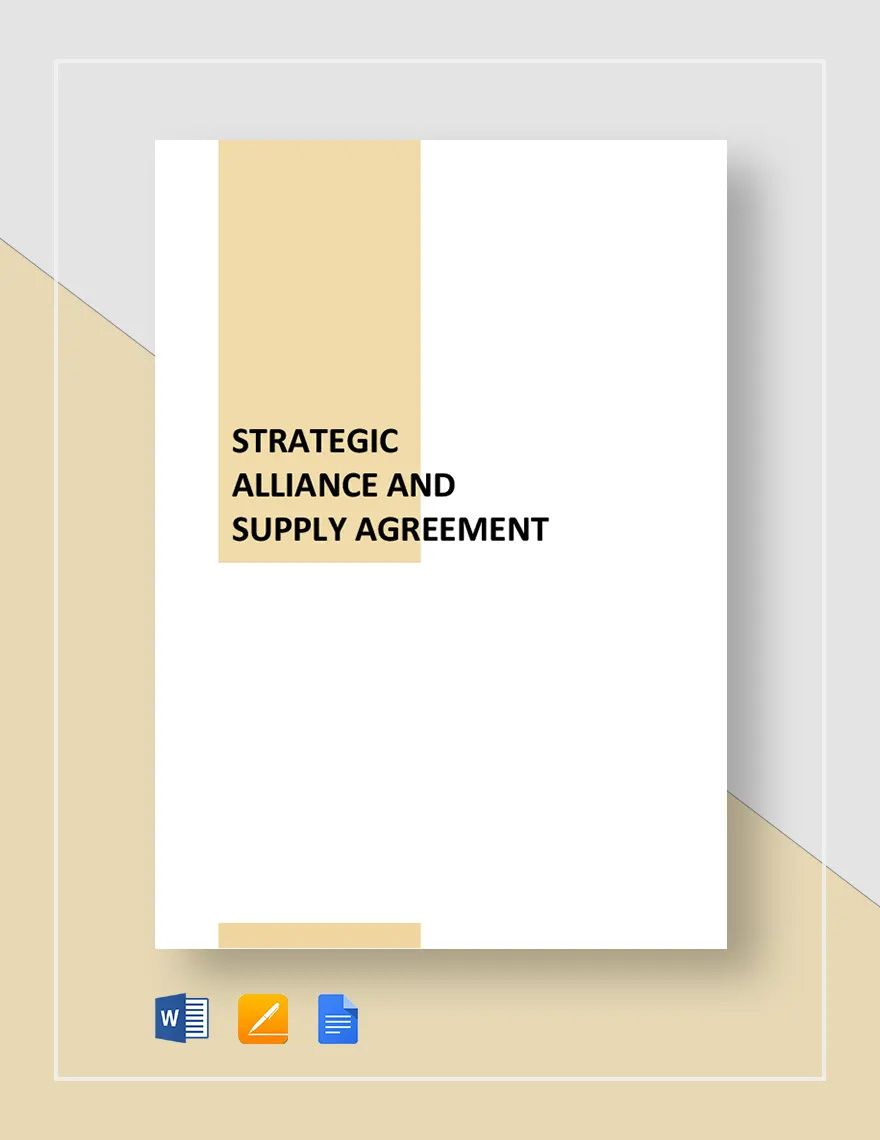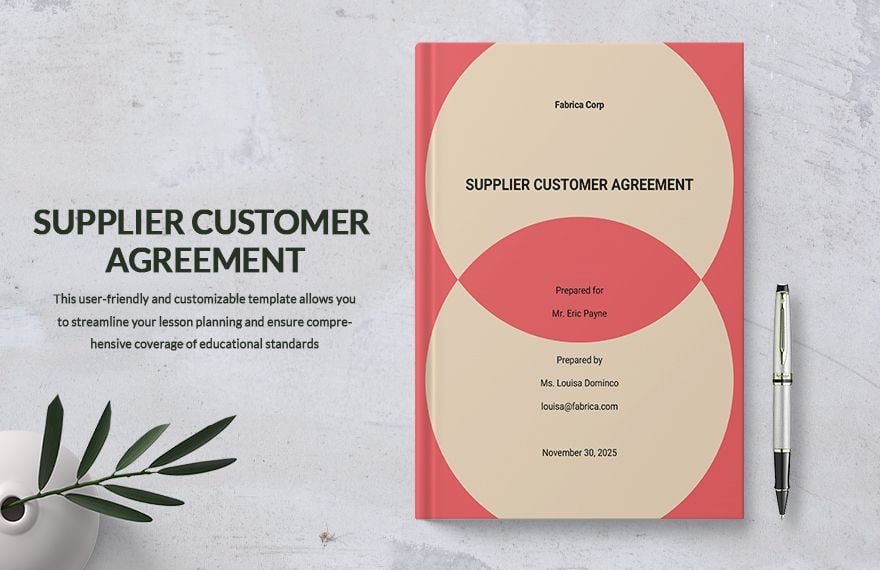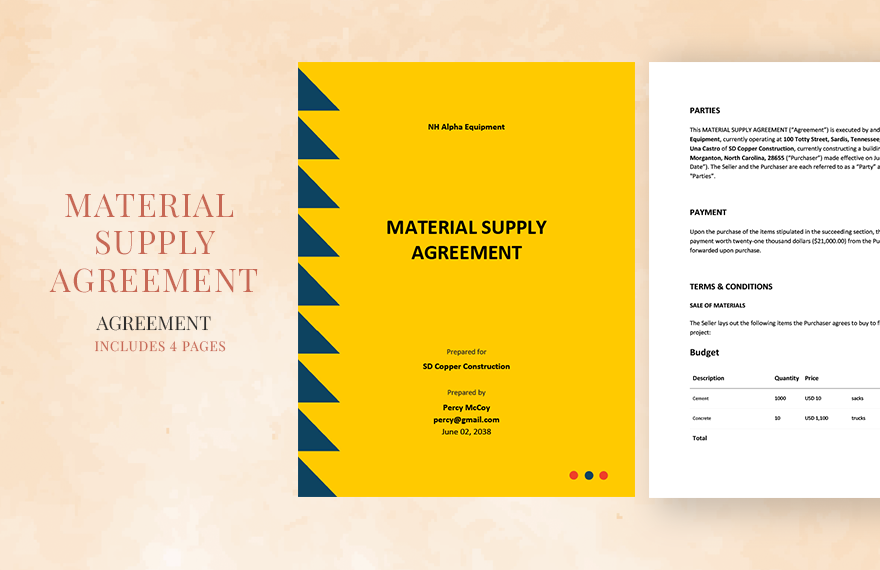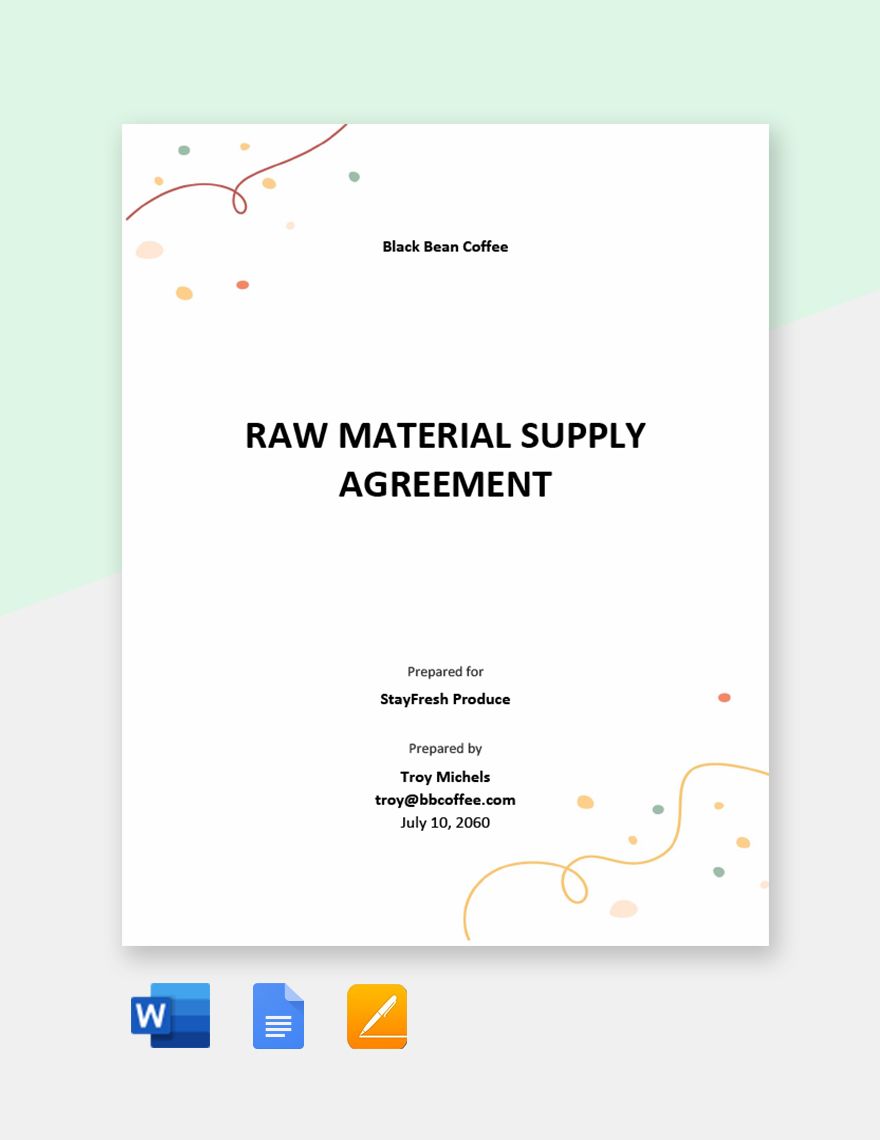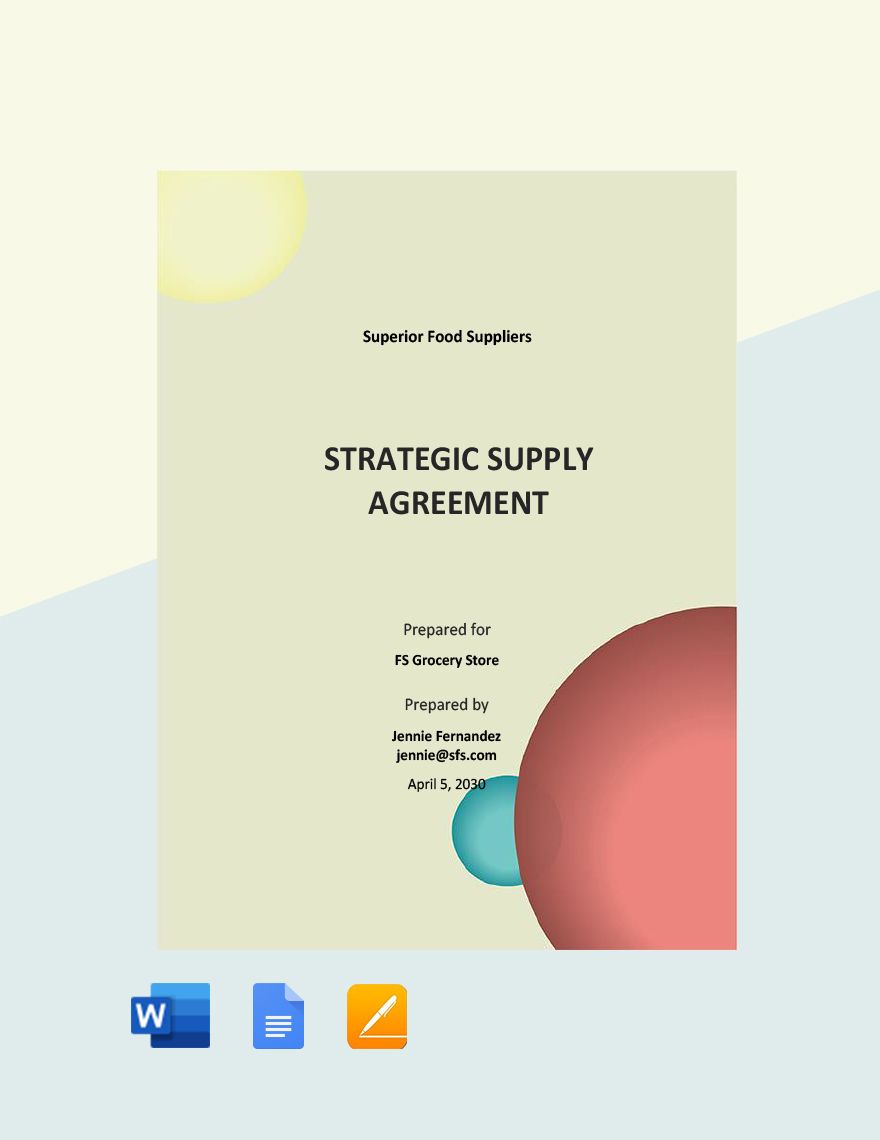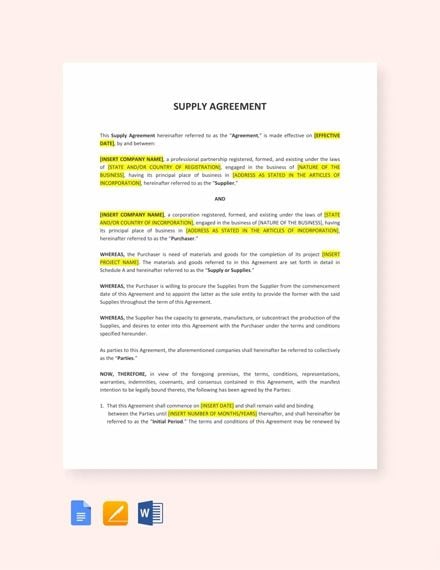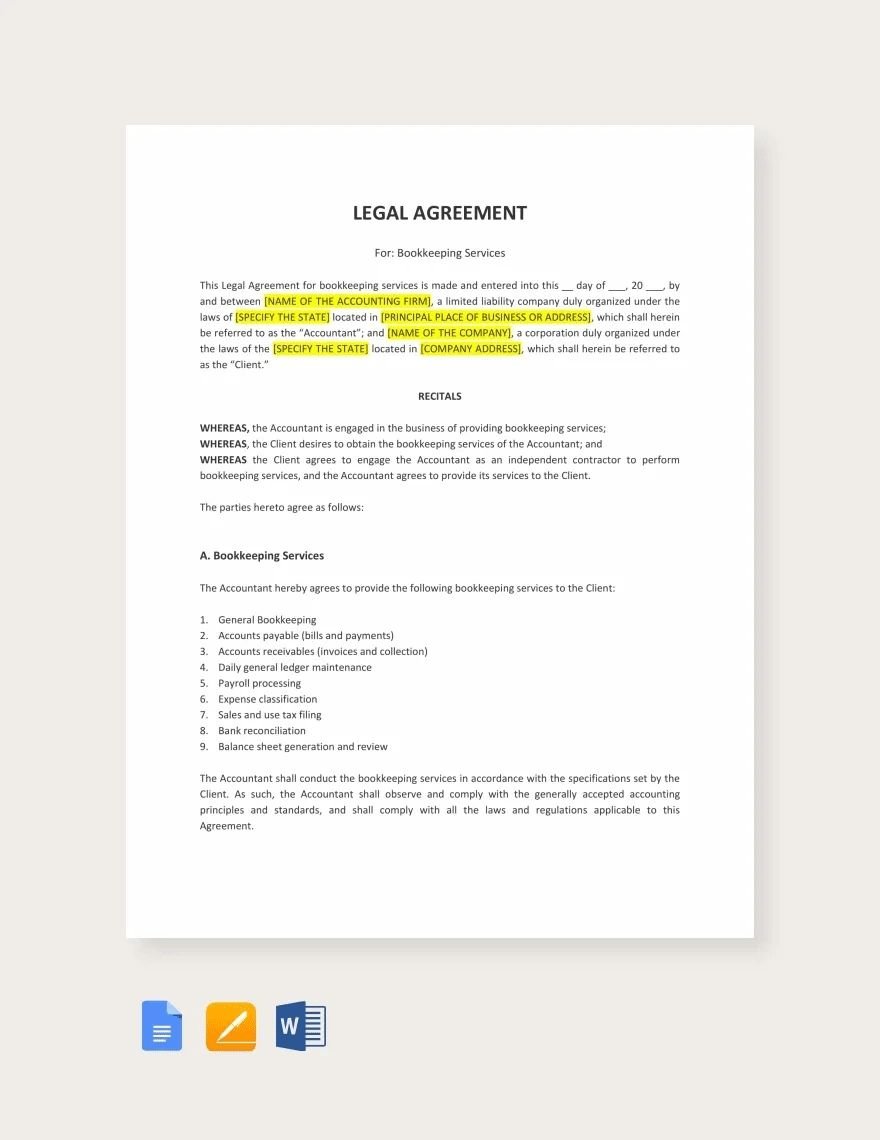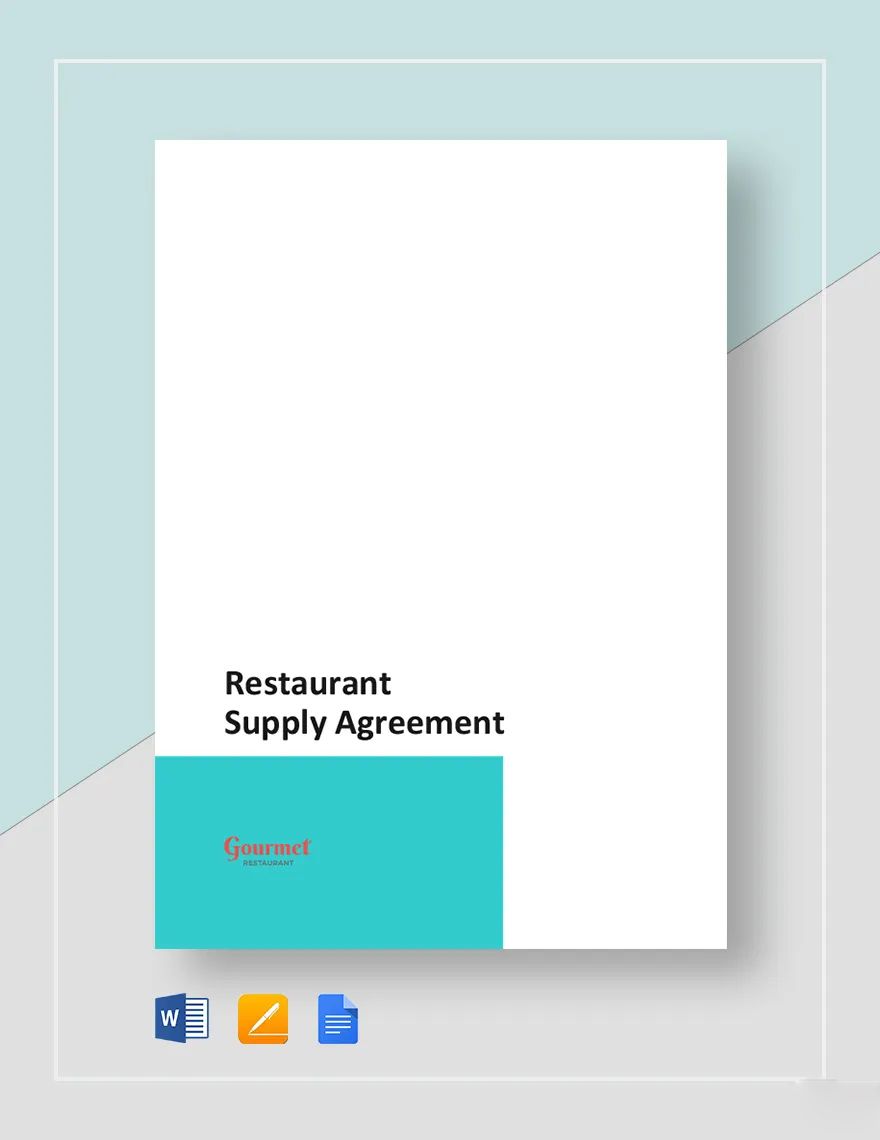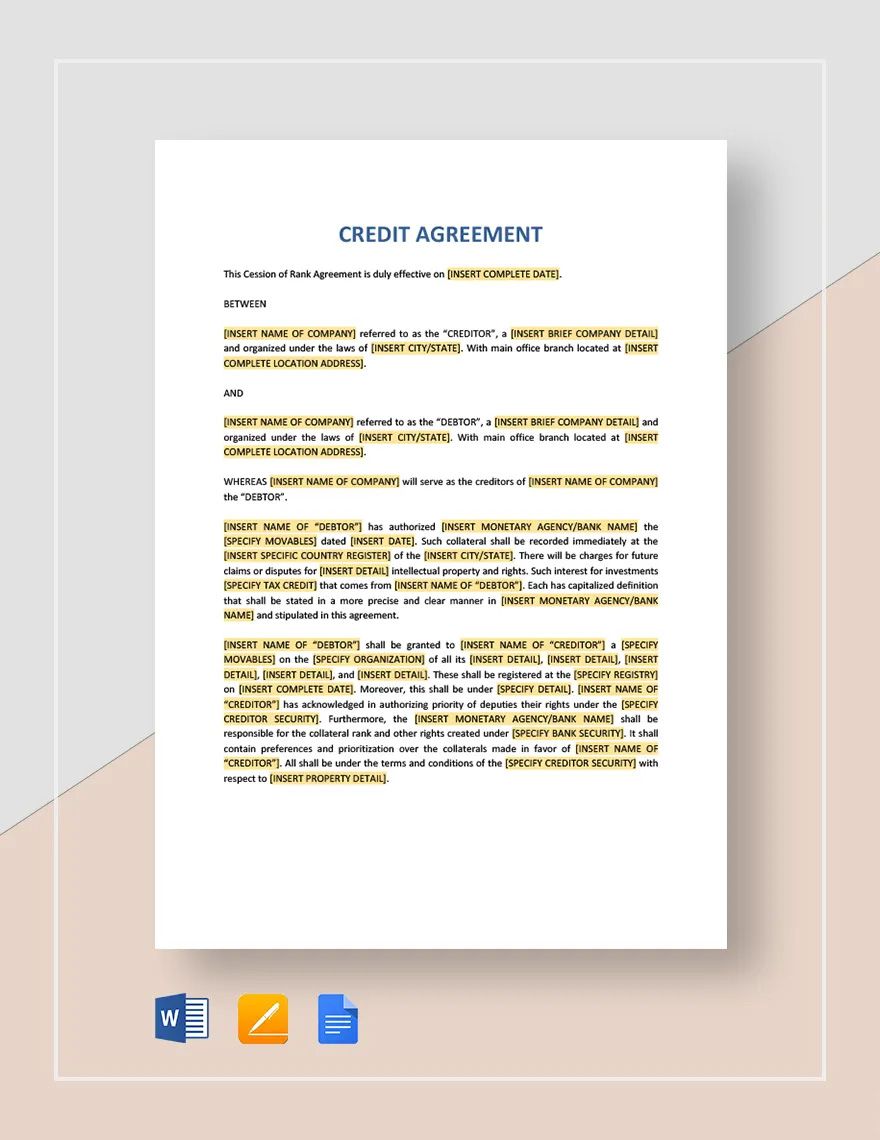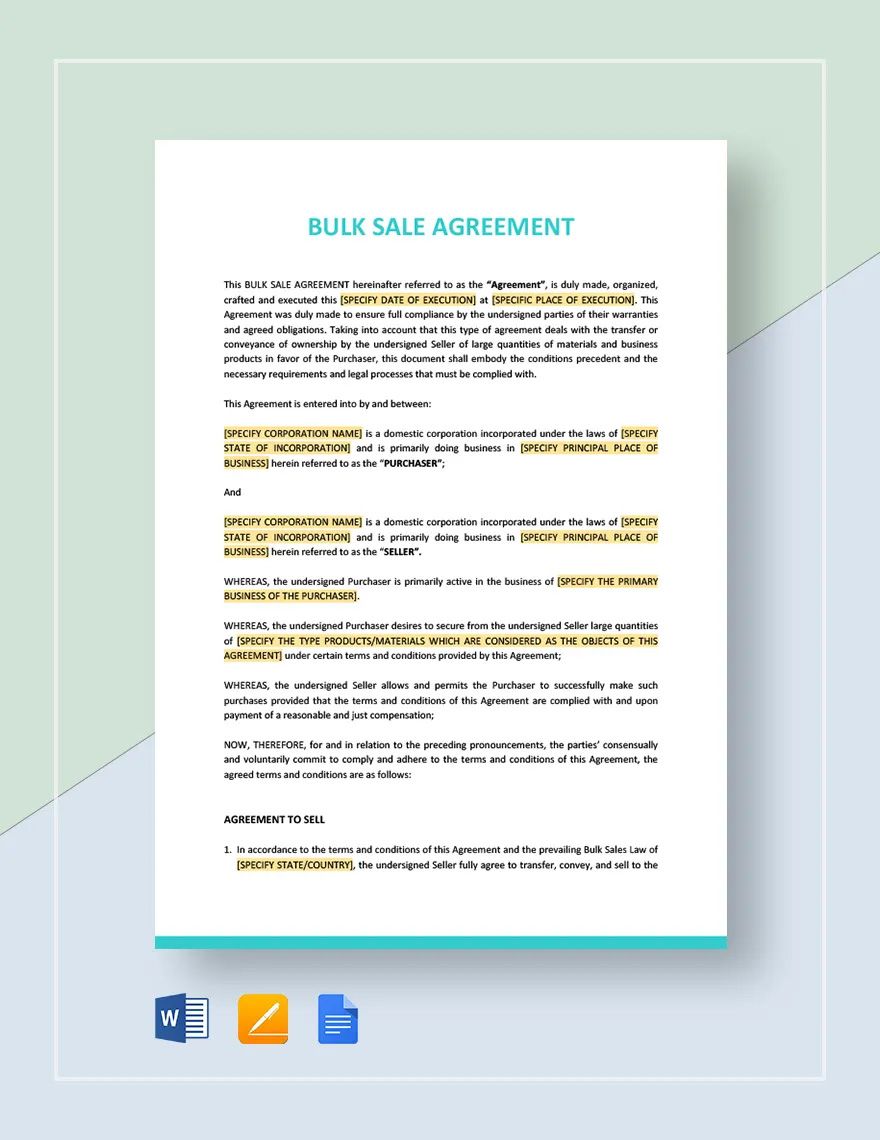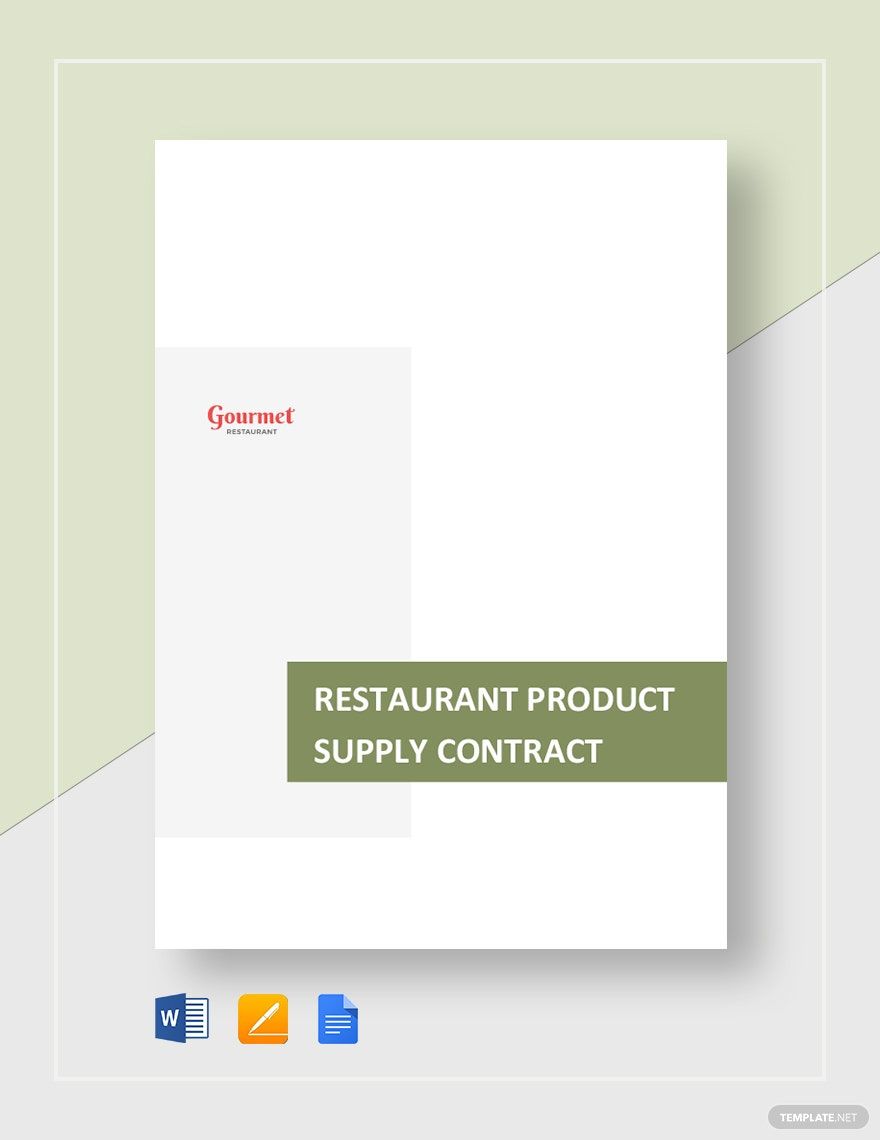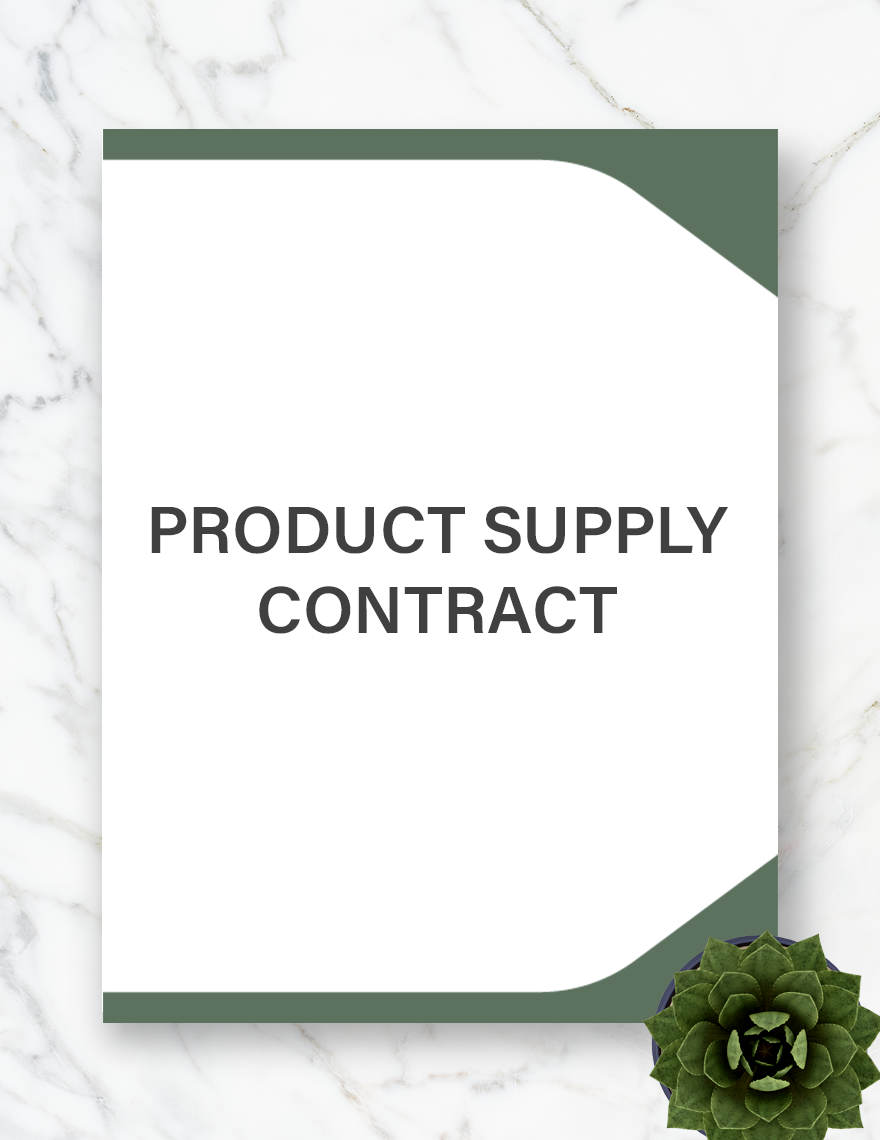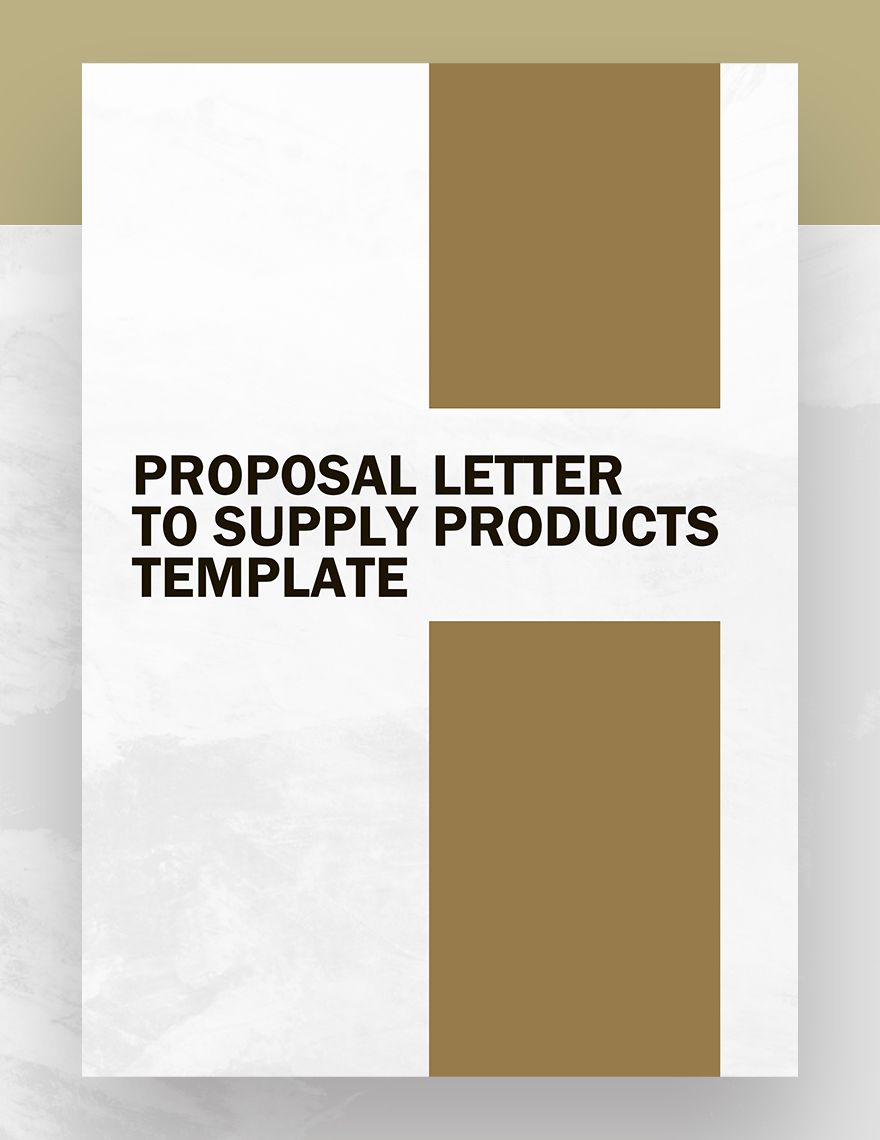Make Your Document Creation Effortless with Supply Agreement Templates from Template.net
Bring your seamless document creation to life with Supply Agreement Templates from Template.net. Designed for business professionals and entrepreneurs, these templates enable you to simplify your contract management, ensure consistency in your agreements, and reduce the risk of errors or omissions. Whether you need to formalize a new vendor relationship or amend an existing agreement, our templates offer the flexibility to include essential details such as terms, conditions, and contact information without the need for legal expertise. These templates boast professional-grade designs that ensure your documents maintain a polished and authoritative appearance, eliminating the need for specialized legal knowledge. Enjoy creating documents that uphold your brand’s integrity with no need for extensive legal know-how, thanks to our easily accessible templates.
Discover the many Supply Agreement Templates we have on hand, each tailored to suit a variety of business needs. Start by selecting your preferred template and effortlessly customize it by swapping in your company’s logo, adjusting colors to match your brand palette, and choosing from a selection of professional fonts. Enhance your documents further by dragging and dropping icons or graphics that resonate with your branding. With endless possibilities for customization and no technical skill required, Template.net empowers you to craft agreements that are both functional and visually appealing. Our collection features regularly updated templates, ensuring you always have access to the latest designs. Once your document is complete, easily download or share it via print or email. Ideal for a range of channels, our templates enable you to collaborate in real-time with your team, streamlining your document creation process.
